Latest
2024
Dec
Nov
Oct
Sep
Aug
Jul
Jun
May
Apr
Mar
Feb
Jan
2023
Dec
Nov
Oct
Sep
Aug
Jul
Jun
May
Apr
Mar
Feb
Jan
2022
Dec
Nov
Oct
Sep
Aug
Jul
Jun
May
Apr
Mar
Feb
Jan
2021
Dec
Nov
Oct
Sep
Aug
Jul
Jun
May
Apr
Mar
Feb
Jan
2020
Dec
Nov
Oct
Sep
Aug
Jul
Jun
May
Apr
Mar
Feb
Jan
2019
Dec
Nov
Oct
Sep
Aug
Jul
Jun
May
Apr
Mar
Feb
Jan
2018
Dec
Nov
Oct
Sep
Aug
Jul
Jun
May
Apr
Mar
Feb
Jan
2017
Dec
Nov
Oct
Sep
Aug
Jul
Jun
May
Apr
Mar
Feb
Jan
2016
Dec
Nov
Oct
Sep
Aug
Jul
Jun
May
Apr
Mar
Feb
Jan
2015
Dec
Nov
Oct
Sep
Aug
Jul
Jun
May
Apr
Mar
Feb
Jan
2014
Dec
Nov
Oct
Sep
Aug
Jul
Jun
May
Apr
Mar
Feb
Jan
2013
Dec
Nov
Oct
Sep
Aug
Jul
Jun
May
Apr
Mar
Feb
Jan
2012
Dec
Nov
Oct
Sep
Aug
Jul
Jun
May
Apr
Mar
Feb
Jan
2011
Dec
Nov
Oct
Sep
Aug
Jul
Jun
May
Apr
Mar
Feb
Jan
2010
Dec
Nov
Oct
Sep
Aug
Jul
Jun
May
Apr
Mar
Feb
Jan
2009
Dec
Nov
Oct
Sep
Aug
Jul
Jun
May
Apr
Mar
Feb
Jan
2008
Dec
Nov
Oct
Sep
Aug
Jul
Jun
May
Apr
Mar
Feb
Jan
2007
Dec
Nov
Oct
Sep
Aug
Jul
Jun
May
Apr
Mar
Feb
Jan
2006
Dec
Nov
Oct
Sep
Aug
Jul
Jun
May
Apr
Mar
Feb
Jan
2005
Dec
Nov
Oct
Sep
Aug
Jul
Jun
May
Apr
Mar
Feb
Jan
2004
Dec
Nov
Oct
Sep
Aug
Jul
Jun
May
Apr
Mar
Feb
Jan
2003
Dec
Nov
Oct
Sep
Aug
Jul
Jun
May
Apr
Mar
Feb
Jan
2002
Dec
Nov
Oct
Sep
Aug
Jul
Jun
May
Apr
Mar
Feb
Jan
2001
Dec
Oct
Sep
Aug
Jul
Jun
May
Apr
Mar
Feb
Monday, March 31, 2014
Music Week
 |
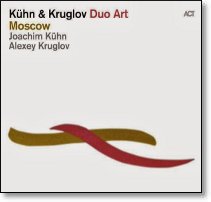 |
 |
 |
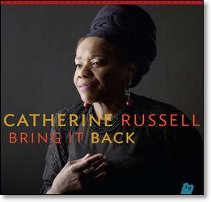 |
 |
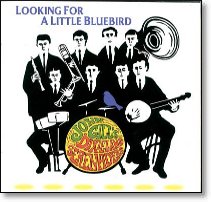 |
 |
Music: Current count 23045 [23007] rated (+38), 594 [593] unrated (+1).
Having trouble with this "emeritus" concept, as once again the rated count is in the stratosphere. I thought I'd do a second Rhapsody Streamnotes for March, then remembered I don't have to: why not run it the first week in April, then (maybe) a second one later in the month? The draft file is long enough to run now, but a few days shouldn't make any difference.
Lots of A- records this week, but note that three (of four) jazz albums got to me via Rhapsody, so only one of sixteen CD sets listed below made the grade -- not that I'm unhappy to own the high B+ releases. The Rainey and Russell records came recommended by other reviews, but I wasn't even aware that the Kühn & Kruglov disc existed until I stumbled on it looking for Kühn's 2013 trio, Voodoo Sense, also on ACT but not on Rhapsody.
I'm up to 19 jazz records on this year's A-list, so there's little doubt that this will be another bounteous year for new jazz. I'm having much more trouble with non-jazz: only five finds this year, but the two this week impressed me enough I went out and bought copies. Good chance the Hold Steady will wind up a full A. Don't know whether this is due to me or the world: I'm certainly not listening to as many records this year as last. I have a cribsheet of possible things to check out (there's actually a lot more in the file than you can see, but what you can't is probably of lesser interest). I don't have a metacritic file this year: that would give me a better idea of what other people think, but that's rarely a good guide these days.
In the old records section, I've been sampling John Gill and Chris Tyle. Like the Penguin Guide authors, I have a soft spot for trad jazz, so when I noticed a couple Stomp Off records on Rhapsody, I thought I'd try to round up whatever I had missed (i.e., most of them). Turns out there aren't that many available -- indeed, the Silver Leaf Jazz Band records are mostly on another label -- but I've found a couple and will keep digging. [A second album by Gill is at least as good as the first, and I've found an album by tuba tooter Vince Giordano.]
Rhapsody Streamnotes later this week. Michael Tatum's A Downloader's Diary should be running over at Odyshape sometime this week, and you can already scroll back for the first two installments of his singles column ("Public NME"), and pieces that appreciate Withered Hand and Skrillex more than I do.
New records rated this week:
- Ambrose Akinmusire: The Imagined Savior Is Far Easier to Paint (2014, Blue Note): postbop trumpet [r]: B-
- The Baseball Project: 3rd (2014, Yep Roc): America's past pastime [r]: B+(***)
- Benjamin Duboc: St. James Infirmary (2013 [2014], Improvising Beings): solo bass [cd]: B+(*)
- Scott Feiner & Pandeiro Jazz: A View From Below (2013 [2014], self-released): Brazil-oriented guitar-keyboard-pandeiro trio [cd]: B
- Tom Griesgraber/Bert Lams: Unnamed Lands (2013 [2014], self-released): guitar-stick duo [cd]: B+(*)
- Hamell on Trial: The Happiest Man in the World (2014, New West): folk rants [r]: B+(**)
- Lisa Hilton: Kaleidoscope (2013 [2014], Ruby Slippers): piano trio + J.D. Allen [cd]: B+(**)
- The Hold Steady: Teeth Dreams (2014, Razor & Tie/Washington Square): deep alt rock [r]: A-
- Matthew Kaminski: Swingin' on the New Hammond (2013 [2014], Summit): organ-guitar trio [cd]: B+(*)
- Stacey Kent: The Changing Lights (2013 [2014], Warner Jazz): jazz vocals [r]: B+(**)
- Joachim Kühn/Alexey Kruglov: Duo Art: Moscow (2012 [2014], ACT): piano-sax duo [r]: A-
- Mike Longo: Step On It (2013 [2014], CAP): piano trio [cd]: B+(***)
- Allen Lowe: Mulatto Radio: Field Recordings: 1-4 (2012 [2014], Constant Sorrow, 4CD): avant-trad jazz [cd]: A-
- Romero Lubambo: Só: Brazilian Essence (2013 [2014], Sunnyside): solo guitar [cd]: B+(*)
- Machine Mass [Tony Bianco/Michel Delville]: Inti (2012 [2014], Moonjune): featuring Dave Liebman [cd]: B+(**)
- Shawn Maxwell: Shawn Maxwell's Alliance (2013 [2014], Chicago Sessions): jazz tentet [cd]: B-
- Kristen Miranda: Double Time (2013 [2014], self-released): jazz standards [cd]: B+(**)
- The North: Slow Down (This Isn't the Mainland) (2013 [2014], Dowsett): piano trio [cd]: B+(*)
- Itaru Oki: Chorul Zukan (2013 [2014], Improvising Beings): solo trumpet-flugelhorn [cd]: B+(***)
- Tom Rainey: Obbligato (2013 [2014], Intakt): standards gone awry [r]: A-
- Isaiah Rashad: Cilvia Demo (2014, Top Dawg): left-coast rapper with dirty south roots [r]: B+(***)
- Dianne Reeves: Beautiful Life (2014, Concord Jazz): jazz diva [r]: B-
- Alfredo Rodriguez: The Invasion Parade (2014, Mack Avenue): Cuban piano jazz [r]: B+(*)
- Noah Rosen/Alan Silva: O.I.L.: Orchestrated Improvised Lives (2013, Improvising Beings): orchestral synth [cd]: B+(***)
- Catherine Russell: Bring It Back (2014, Jazz Village): swing standards [r]: A-
- Shakira: Shakira (2014, RCA): cosmopolitan pop [r]: A-
- Skrillex: Recess (2014, Owsla/Big Beat/Atlantic): daft punk [r]: B-
- Adam Smale: Out of the Blue (2013 [2014], self-released): guitar-piano quartet [cd]: B+(*)
- Daniel Szabo/Peter Erskine/Edwin Livingston: A Song From There (2013 [2014], self-released): piano trio [cd]: B+(*)
- Caetano Veloso: Abraçoço (2014, Nonesuch): Brazilian legend [r]: B+(**)
- The Westerlies: Wish the Children Would Come on Home: The Music of Wayne Horvitz (2013 [2014], Songlines): brass quartet [cd]: B+(**)
- YG: My Krazy Life (2014, Def Jam): juvenile gangstaphilia [r]: B-
Old records rated this week:
- Johnny Cash: Out Among the Stars (1981-84 [2014], Columbia): outlaw outtakes [r]: B+(***)
- John Gill's Dixieland Serenaders: Looking for a Little Bluebird (1994 [1996], Stomp Off): trad jazz [r]: A-
- Harry Reser: Banjo Crackerjax 1922-1930 (1922-30 [1992], Yazoo): banjo ragtime jazz [r]: B+(***)
- Harry Reser: Harry Reser and the Clicquot Club Eskimos (1951 [2008], Bauer): banjo orchestra [r]: B+(*)
- Silver Leaf Jazz Band: Streets & Scenes of New Orleans (1993 [1994], Good Time Jazz): New Orleans trad jazz [r]: B+(***)
- Silver Leaf Jazz Band: Jelly's Last Jam (1993, Good Time Jazz): Jelly Roll Morton tribute [r]: B+(**)
- Silver Leaf Jazz Band: Great Composers of New Orleans Jazz (1996 [1997], Good Time Jazz): New Orleans trad jazz [r]: B+(***)
- Chris Tyle's Silver Leaf Jazz Band: Sugar Blues: A Tribute to Joseph "King" Oliver (1995, Stomp Off): King Oliver tribute [r]: A-
Unpacking: Found in the mail last week:
- Kris Adams: Longing (Jazzbird)
- Bobby Avey: Authority Melts From Me (Whirlwind): May 7
- Andrew Hadro: For Us, the Living (Tone Rogue): April 1
- Pete McGuinness Jazz Orchestra: Strength in Numbers (Summit): April 8
- Ivo Perelman: Book of Sound (Leo): April 15
- Ivo Perelman: The Other Edge (Leo): April 15
- Ivo Perelman/Mat Maneri: Two Men Walking (Leo): April 15
- Louis Prima Jr. and the Witnesses: Blow (Warrior): June 10
- Ellen Rowe Quintet: Courage Music (PKO)
- Jenny Scheinman: The Littlest Prisoner (Masterworks): advance, May 6
- Brenda Earle Stokes: Right About Now (self-released): advance, June 10
- David White Jazz Orchestra: The Chase (Mister Shepherd): April 8
- Michael Wollny Trio: Weltentraum (ACT)
- Basak Yavuz: Things (Z Music)
Purchases:
- The Hold Steady: Teeth Dreams (Razor & Tie/Washington Square)
- Shakira (RCA)
Sunday, March 30, 2014
Weekend Roundup
I haven't posted anything since last Monday's Music Week. Not sure where all the time has gone, but after Monday's Music Week I should have a books post and a Rhapsody Streamnotes coming pretty quick. Tried to knock out a links post today and didn't get through nearly everything I wanted to look at. Still, a few things to chew on:
Tom Engelhardt: In Memoriam: Jonathan Schell: He died on March 25, of cancer, age 70, after a life as one of the one of our most important writers on wars real and potential. His early book on Vietnam, The Village of Ben Suc, was an instant classic. He had wangled some press credentials, dropped in on the war for just a couple weeks, but in that time witnessed an atrocity which turns out to have been remarkably common in that war. (Nick Turse's recent Kill Anything That Moves: The Real American War in Vietnam finally gives us a sense of just how common such atrocities really were.) He wrote many eloquent "opinion" pieces, perhaps most notably during the Watergate scandal and in the lead up to the Iraq War. He wrote about nuclear weapons and what war with them would be like (The Fate of the Earth), and in 2003 he wrote a prescient book about how difficult it is to impose new political orders: The Unconquerable World: Power, Nonviolence, and the Will of the People -- just in time to forecast the horrible failure of the Iraq War and so much more, but more importantly the folly of man's appetite for conquest. The obituaries have focused more on the bestseller, but the latter book is the one I read and will return to. This link touches on much I have mentioned, but from the vantage point of someone who knew and worked with Schell. It also includes an interview Chris Appy did with Schell focusing on the Vietnam War, but even there he winds up cycling back to nuclear war -- where the war we couldn't afford to fight somehow excused the lack of limits when fighting people who didn't have the luxury of nuclear weapons: instead of causing a cascade where the impossibility of big wars ruled out any war, those weapons made small wars all the more vicious. They called it "credibility" back then. Perhaps you've heard that term recently.
More on Schell:
- David Remnick: Jonathan Schell, 1943-2014: includes links to important New Yorker pieces.
- Katrina vanden Heuvel: The Fearless Idealism of Jonathan Schell: includes links to important articles Schell wrote for The Nation.
- Jonathan Schell: How Did the Gates of Hell Open in Vietnam?: book review of Nick Turse: Kill Anything That Moves: The Real American War in Vietnam.
Katrina vanden Heuvel: This Week in 'Nation' History: The Horrific Legacy of the Invasion of Iraq:
This Monday marks the eleventh anniversary of the US invasion of Iraq -- a solemn punctuation mark to the steadily increasing violence that has gripped that country over the past two years. Sectarian violence claimed more than 8,000 Iraqis in 2013 alone, and this year's toll has already surpassed 2,000. Iraq today is a broken and failing state: the war that many would prefer to believe ended in 2011 continues unabated, with Iraqis continuing to suffer, as much as ever, the fallout from this country's callous lies and avoidable mistakes.
Vanden Heuvel goes on to cite a number of articles, some old like Jonathan Schell's 2003 editorial, American Tragedy, and some new, like John Feffer: Revisiting the Pottery Barn Rule:
The real Pottery Barn rule -- the same rule that all retailers have -- is to write off the broken merchandise as a loss. And that is what we have done to Iraq.
The latest violence in Iraq rivals the levels last seen during wartime. Last year, between 8,000 and 10,000 civilians were killed, the highest number since 2008. According to one recent study, half a million Iraqis have died from war-related causes since the 2003 US invasion, a figure that includes indirect casualties from the breakdown of the country's social structure.
Most Iraqi deaths since 2003 were the result of sectarian violence between Iraqi shiite and sunni groups, and that violence was the direct result of US invasion policy: specifically the arming of shiite and Kurdish militias to aid the invasion forces. From the very beginning, the US made virtually no effort to restrict killing by "friendly" militias. (Evan Wright's Generation Kill helps provide a time line here, as the troops he was embedded with were locked down at night as soon as they arrived in Baghdad so that shiite bands could rove the streets and exact whatever revenge they felt entitled to.) Later on the US learned to fine tune the sectarian warfare, mostly to prevent any kind of unity that could threaten US occupation (either with war or peace).
Alex Pareene: Our Glorious Golden Era of Nepotism: When I read Robert Townsend's Up the Organization, I was a bit surprised to see its brief section slamming nepotism, then I remembered what happened at a printing company I once worked for when the founder became incapacitated and his idiot son took over. When I asked for a raise, the son told me I was already making for max for Wichita, but if I really needed more I should move to a higher wage market, like Tulsa. When I did quit, he coughed up $2/hour more plus free parking, but after a couple months I left anyway and moved to New York City. Next time I checked the company, which when I left still had more than 50 employees, was out of business. Townsend's argument was considerably subtler than nepotism favors morons. It included:
The fatal fact about nepotism is that the really good people won't go to work for you in the first place or will quit or quit trying for your job when they spot your uncle, brother, nephew, wife, mistress or son on the payroll.
In other words, ambitious hard-workers will know the organization won't be evaluate them fairly. It also means that the whole incentive scale is skewed, which probably means that the organization is sliding into dysfunctionality. Nepotism has been spreading in recent years -- it's hard to tell whether political dynasties like the Bushes, Romneys, and Gores are a symptom or a cause, but Bush must have set the record for crony appointments (e.g., the sons of Antonin Scalia and Colin Powell). Pareene has a long list of these people, and didn't even think of my examples. The trend is not only toward more of them, but to more prominence of inherited wealth. Moreover, I suspect recent moves against opportunity and mobility, like the ever-increasing debt burden of education, are meant to open up jobs for the excess progeny of the rich. Even among family farmers and small-time businessmen, nepotism attempts to create an air of aristocracy, but that's nothing compared to what the real aristocracy does.
Also, a few links for further study:
Bernard Avishai: Truman's Folly?: A lengthy review of John Judis: Genesis: Truman, American Jews, and the Origins of the Arab/Israeli Conflict (2014, Farrar Straus and Giroux) -- a book I am currently about two-thirds of the way through, which gets the point when Britain decided to withdraw from Palestine and turn responsibility for it back to the United Nations. Avishai starts by hailing the Truman-period section as "a provocative, learned, even masterful book," while arguing that Judis let his moral views slant his treatment of the "prehistory." I actually found his history of the theory and practice of Zionism in Europe, Palestine, and the US to be remarkably well balanced given its succinct length -- the main contention being how exclusivist the various advocates for a Jewish state were at various points in history. Avishai prefers to believe that Israel's founders were less destined to ethnic cleansing than what actually happened, and to that aim he does a fair amount of nitpicking on the latter sections of the book. That is an interesting question, one that is perhaps even urgent in a day when a writer like Ari Shavit can write a book arguing that Israelis should embrace the expulsion of Palestinians from Lydda and Ramleh as an essential milestone in Israeli history. But I doubt Judis will go that far. The more likely "lesson for today" is that the US political system is still susceptible to the sort of pressures that led Truman to support policies he didn't think right, and that Israeli politicians are still able to manage US lobbying in ways that prevent them from having to compromise. But even there, Judis would not be drawing an insight from history to explain the present. Rather, he is showing how the current dynamic worked even in the much simpler Truman period.
Another Nation book review, of Max Blumenthal's Goliath: Life and Loathing in Greater Israel: Nadia Hijab: In 'Goliath,' the Past Is Always Present for Palestinians. Several minor problems with the review, starting with the title. The book has relatively little to do with what Israel does to Palestinians -- more so about what right-wing Israelis would like to do, but much more of the book is about the chilling effect the ascendant right-wing is having on democracy and freedom within Israel. Moreover, you soon discover that Israeli Jews are not immune from having to reface the past in the present: indeed, they face constant reminders of the whole history of anti-semitism, always culminating in the Holocaust. Hijab identifies two main themes in the book: the growth in power of the extreme right-wing (certainly the main theme), and "the way in which today's Israel is the logical evolution of the Zionist enterprise from its inception in the late nineteenth century." Blumenthal actually offers very little of the history you'd need to hang that point on, and I suspect that if you pressed him he'd be more inclined to find the roots of today's right-wing in the ongoing process of occupation and settlement building -- along with things like the draft and the thorough propagandizing process known as hasbara -- as opposed to ideology handed down from Pinsker and Herzl. In many ways this is an offshoot of the old "zionism = racism" argument. Historically you can probably find a few individuals who could keep those threads separate, but most Europeans in the late 19th and early 20th centuries were significantly racist, and that certainly didn't preclude them from being zionist. Moreover, decades of exposure, misunderstanding, and violent conflict were much more likely to reinforce those prejudices than relieve them. And Israel is currently so severely segregated that few people have any opportunity to learn better, so the practical equivalence of "zionism = racism" is very real, even among the ideologically ignorant.
Nick Turse: US Military Averaging More Than a Mission a Day in Africa: The last thing the American people need these days is another war to stop, and the US military certainly doesn't want to provoke any sleeping giants, so AFRICOM tries to keep whatever it is it's doing under the radar. Still, 546 "activities," "a 217% increase in operations, programs, and exercises since the command was established in 2008," suggest there is a daily risk of something small ("airstrikes targeting suspected militants, night raids aimed at kidnapping terror suspects") blowing up into something big. The only way to keep that from happening is to illuminate what they're doing now, and question it.
Stephen Zunes: Straight Talk on the US and Ukraine: Useful general perspective on the Ukraine crisis, condemning Russian expansion into Crimea but also point out that the US, by its own longstanding behavior, has little credibility to stand on. What is needed here is application of international law, but to make a persuasive moral case against Russia the US would have to show some respect of its own for international law -- as opposed to just invoking it when it's convenient, as here.
On the other hand, Americans continue to say really stupid things about Crimea, as in this report: Obama Suggests Russian Annexation of Crimea Is Worse Than Iraq Invasion. (John Glaser comments: "This is perhaps the most aninine thing the president has said in the entirety of his presidency.") There was once a rumor, widely circulated c. 2008, that Obama had opposed Bush's invasion of Iraq, but as Zunes pointed out, Obama has persistently undercut the credit he gained from opposing the Iraq war by appointing supporters of that war to key foreign policy positions (Hillary Clinton, John Kerry, Joe Biden).
Other links related to Ukraine:
- Jason Ditz: The Other, Other Position on Crimea: sees Russia's move in Crimea as mostly economic, with Crimeans expecting much more economic support from Russia, and Putin seeing that as much cheaper than "try[ing] to get another Yanukovych elected."
- Lee Fang: How the Gas Lobby Is Using the Crimea Crisis to Push Bad Policy and Make More Money
- Frank Furedi: The Infantile Diplomacy Behind Demonising Russia: picture shows multiple Putins with Hitler moustaches.
- Paul H Rosenberg: Seven Decades of Nazi Collaboration: America's Dirty Little Ukraine Secret
Monday, March 24, 2014
Music Week
 |
 |
 |
 |
 |
 |
 |
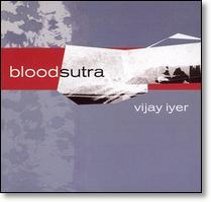 |
Music: Current count 23007 [22967] rated (+40), 593 [599] unrated (-6).
Heavy week for records rated, easily sailing past that 23,000 mark. Some of these showed up in last Wednesday's Rhapsody Streamnotes (Iyer, Serengeti), and once that went up I suffered a little "empty nest" syndrome and rushed to repopulate my draft file. I actually had Eric Revis written up by Wednesday, but held it back because I couldn't find a single cover scan anywhere on the web (or at least Google couldn't). I only had an advance, so couldn't help myself either, but I can show the cover now.
Main reason there are so many album covers is that I noticed Rhapsody has most of the early Vijay Iyer I had missed. With a new record out, it seemed like a good time to look back, but I didn't get them written up by Wednesday's post. I split his first five albums into three A- and two near misses, but more time and space could have resulted in a sweep. Clearly a major talent from the very start, even more so than Jason Moran (whose first four albums I have at A-, but nothing that high since). The rest of Iyer's catalog looks like this:
- Vijay Iyer/Mike Ladd: In What Language? (2003, Pi) A-
- Vijay Iyer: Reimagining (2004 [2005], Savoy Jazz) A-
- Fieldwork: Simulated Progress (2005, Pi) A-
- Vijay Iyer/Rudresh Mahanthappa: Raw Materials (2005 [2006], Savoy Jazz) B
- Vijay Iyer/Mike Ladd: Still Life With Commentator (2006 [2007], Savoy Jazz) A-
- Vijay Iyer: Tragicomic (2007 [2008], Sunnyside) A
- Fieldwork: Door (2007 [2008], Pi) A-
- Vijay Iyer Trio: Historicity (2008-09 [2009], ACT) A-
- Vijay Iyer: Solo (2010, ACT) B+(***)
- Vijay Iyer/Prasanna/Nitin Matta: Tirtha (2008 [2011], ACT) B+(***)
- Vijay Iyer Trio: Accelerando (2011 [2012], ACT) A-
- Vijay Iyer/Mike Ladd: Holding It Down: The Veterans' Dreams Project (2013, Pi) B+(**)
I also note A- side-credits with: Burnt Sugar (Blood on the Leaf: Opus No. 1); Carlo De Rosa (Brain Dance); Steve Lehman (Demian as Posthuman); Rudresh Mahanthappa (Codebook); Wadada Leo Smith (Spiritual Dimensions). Also 17 others rated lower. Remarkable career, and this just up to age 43.
Main thing I've been working on recently is an interview for rockcritics.com. If you have any questions you'd like to see answered, write me -- or, what the hell, use the underused comments feature -- and I'll see if I can work them in.
New records rated this week:
- Jaime Affoumado/Alex Blake/Arturo O'Farrill/Bill Ware: The Puppeteers (2013 [2014], Puppet's): piano-vibes quartet [cd]: B+(**)
- Ariel Alexander & Jon Bremen: Street Cries (2013 [2014], self-released, EP): sax-guitar groove [cd]: B+(*)
- Mike Bardash Quintet: Polygon (2013 [2014], Rhombus): hard bop [cd]: B+(*)
- Aloe Blacc: Lift Your Spirit (2014, XIX/Interscope): retro-soul [r]: B+(*)
- Blaqstarr: The Blaq-Files (2002-06) (2002-06 [2014], Jeffree's/Mad Decent, EP): teen techno treats [r]: B+(*)
- Mike DiRubbo: Threshold (2013 [2014], Ksanti): hard bop [cd]: A-
- Drive-By Truckers: English Oceans (2014, ATO): Southern rock [r]: B+(**)
- Rachel Eckroth: Let Go (2013 [2014], Virgo Sun): singer-songwriter [cd]: B
- Violeta Ferrer/Raymond Boni: Federico García Lorca (2013 [2014], Fou): spoken poetry + guitar [cd]: B+(*)
- Erik Friedlander: Nighthawks (2013 [2014], Skipstone): string groove [cd]: B+(***)
- Billy Hart Quartet: One Is the Other (2013 [2014], ECM): postbop all-stars [dl]: B
- Tim Hegarty: Tribute (2013 [2014], Miles High): to Jimmy Heath and peers [cd]: B+(***)
- Hutchinson Andrew Trio: Prairie Modern (2012 [2014], Chronograph): piano trio + Donny McCaslin [cd]: B+(***)
- Vijay Iyer: Mutations (2013 [2014], ECM): piano + string quartet [dl]: A-
- Christine Jensen Jazz Orchestra: Habitat (2013 [2014], Justin Time): postbop orchestration [cd]: B+
- Knifefight: Knifefight (2013, Anticon, EP): anti-pop hip-hop [bc]: B+(***)
- Aaron McEvers/M13: 1 Human, Too Human (2013 [2014], Blujazz): postmodern big band [cd]: B
- Yvonnick Prene & Padam Swing: Wonderful World (2014, self-released): harmonica-led gypsy jazz [bc]: B+(*)
- Eric Revis: In Memory of Things Yet Seen (2013 [2014], Clean Feed): postbop swallows Darius Jones [cdr]: A-
- Akira Sakata/Giovanni Di Domenico: Iruman (2012 [2014], Mbari Musica): avant sax-piano duo [cd]: B+(*)
- Schoolboy Q: Oxymoron (2014, Interscope): left-field hip-hop [r]: B+(**)
- Marc Seales: American Songs Volume 2: Blues . . . and Jazz (2012 [2014], Origin): piano-guitar quartet [cd]: B+(*)
- Serengeti: C.A.B. (2013, Anticon, EP): California dreaming [bc]: A-
- Kendra Shank & John Stowell: New York Conversations (2011-12 [2014], TCB): singer-guitarist duo [cd]: B+(**)
- Step Brothers: Lord Steppington (2014, Rhymesayers): left-field hip-hop [r]: B+(*)
- Tacocat: NVM (2014, Hardly Art): punk-pop [r]: B+(***)
- Tensnake: Glow (2014, Astralwerks): neo-disco [r]: B+(***)
- Ken Vandermark/Agustí Fernández: Interacting Fields (2013, Discordian): avant sax-piano duo [bc]: B+(***)
- Joe Louis Walker: Hornet's Nest (2014, Alligator): guitar-jerk blues [r]: B-
- Dean Wareham: Dean Wareham (2014, Sonic Cathedral): ex-Luna singer-songwriter [r]: B+(***)
- Dan Weiss: Fourteen (2012 [2014], Pi): avant-choral [cd]: B-
- Pharrell Williams: Girl (2014, Columbia): hits [r]: A-
Old records rated this week:
- Johnny Cash: Happiness Is You (1962-65 [1966], Columbia): folksinger redux [r]: B
- Fieldwork: Your Life Flashes (2002, Pi): Vijay Iyer + sax and drums [r]: A-
- Hardcore Traxx: Dance Mania Records 1986-1997 (1986-97 [2014], Strut, 2CD): Chicago acid house beats [r]: B+(***)
- Vijay Iyer: Memorophilia (1995, Asian Improv): avant-piano jazz [r]: B+(***)
- Vijay Iyer: Architextures (1996 [1998], Asian Improv): avant-piano trio/octet [r]: A-
- Vijay Iyer: Panoptic Modes (2000 [2001], Red Giant): avant-piano quartet [r]: B+(***)
- Vijay Iyer: Blood Sutra (2003, Artists House): piano-sax quartet [r]: A-
- Roscoe Mitchell & the Note Factory: Song for My Sister (2002, Pi): double rhythm section plus skizzy strings and horns [r]: B+(**)
Unpacking: Found in the mail last week:
- Keith Davis Trio: Still (LoNote)
- Ross Hammond: Humanity Suite (Prescott): advance, May 6
- Ideal Bread: Beating the Teens: Songs of Steve Lacy (Cuneiform, 2CD): advance, May 13
- Jazzbonez: Watch It! (Summit)
- Krom (self-released)
- Machine Mass [Tony Bianco/Michel Delville]: Inti (Moonjune)
- Roy Nathanson's Sotto Voce: Complicated Day (Enja/Yellow Bird)
- Xavi Reija: Resolution (Moonjune)
- Ken Watters/Ingrid Felts: Watters/Felts Project (Summit)
- ZZ Quartet: Beyond the Lines (In + Out): May
Friday, March 21, 2014
Daily Log
Looking at 538's March Madness Predictions (caution: requires a lot of scripts). Overall odds look like this (updated after all second-round games played):
- 14%: Louisville (38% MW)
- 12%: Florida (35% S)
- 11%: Arizona (37% W)
- 8%: Kansas (26% S)
- 7%: MSU (27% E)
- 6%: Wichita State (15% MW), Wisconsin (22% W)
- 5%: Villanova (21% E), Virginia (21% E)
- 4%: Michigan (18% MW)
- 3%: Syracuse (15% S), Tennessee (15% MW)
- 2%: Creighton (11% W), Iowa State (10% E), Kentucky (10% MW), UCLA (12% S)
In the third round:
- Louisville (14%) advanced, now 17% (47% MW); next 68% over Kentucky
- Florida (12%) advanced, now 18% (60% S); next 72% over UCLA
- Arizona (11%) advanced, now 17% (50% W); next 73% over SD State
- Kansas (8%) eliminated by Stanford, now
- MSU (7%) advanced, increasind go 8% (32% E); next 51% over Virginia
- Wichita State (6%) eliminated by Kentucky, now 4% (17% MW); next 32% under Louisville
- Wisconsin (6%) advanced, still 6% (23% W); next 59% over Baylor
- Villanova (5%) eliminated by Connecticut, now 3% (19% E); next 52% over Iowa State
- Virginia (5%) advanced, now 6% (31% E); next 49% under MSU
- Michigan (4%) advanced, now 4% (19% MW); next 53% over Tennessee
- Syracuse (3%) eliminated by Dayton, now <1% (11% S); next 50% vs. Stanford
- Tennessee (3%) advanced, now 3% (17% MW); next 47% under Michigan
- Creighton (2%) eliminated by Baylor, now 3% (13% W); next 41% under Wisconsin
- Iowa State (2%) advanced, now 3% (17% E); next 48% under Connecticut
- Kentucky (2%) advanced, now 4% (18% MW)
- UCLA (2%) advanced, now 3% (19% E); next 28% under Florida
Wichita State lost its first game all year (winds up 35-1) on a missed 3-pt shot by Fred Van Vleet at the buzzer. Van Vleet was only 1-4 with 4 points, playing most of second half in foul trouble, so not an impressive performance, but I understand that the only other game all year where WSU was in trouble he scored WSU's last 12 points to tie and win the game in overtime, so arguably he was the goto guy to pull this one out. Other things could have pulled it out, like better foul shooting down the stretch and a bit more rebounding.
Florida pulled ahead of Louisville as the favorite this round. While it helped Louisville to see WSU eliminated, it helped Florida even more to be looking forward to the winner of Dayton-Stanford (two upsets) as opposed to Kansas-Syracuse.
Sporting News college All Americans, first team:
- Nick Johnson, 6-3 jr guard, Arizona: 16.1 pt/4.0 rb/1.2 st
- Sean Kilpatrick, 6-4 sr guard, Cincinnati: 20.9 pt/4.3 rb
- Doug McDermott, 6-8 sr forward, Creighton: 26.5 pt/7.2 rb/44.7% 3-pt
- Jabari Parker, 6-8 fr forward, Duke: 19.2 pt/9.0 rb
- Russ Smith, 6-0 sr guard, Louisville: 17.5 pt/4.8 a/39.4% 3-pt
Second team:
- Shabazz Napier: 6-1 sr guard, Connecticut: 17.8 pt/6.0 rb/5.2 a
- Marcus Paige: 6-1 so guard, North Carolina: 17.1 pt/4.5 a/39.5% 3-pt
- Nik Stauskas: 6-6 so guard, Michigan: 17.4 pt/3.4 a/45.8% 3-pt
- T.J. Warren: 6-8 so forward, North Carolina State: 24.8 pt/7.1 rb
- Andrew Wiggins: 6-8 fr guard, Kansas: 16.8 pt/5.9 rb/1.2 st
Third team:
- Kyle Anderson: 6-9 so guard, UCLA: 14.9 pt/8.7 rb/6.6 a
- Aaron Gordon: 6-8 fr forward, Arizona: 12.3 pt/7.8 rb
- DeAndre Kane: 6-4 sr guard, Iowa State: 17.1 pt/6.7 rb/5.9 a
- Fred Van Vleet: 5-11 so guard, Wichita State: 12.1 pt/5.3 a/44.7% 3-pt
- Scottie Wilbekin: 6-2 sr guard, Florida: 12.9 pt/3.9 a/1.5 st
Wikipedia, based on multiple lists, also names:
- Cleanthony Early: 6-8 forward, Wichita State
- Melvin Ejim: 6-6 forward, Iowa State
Wednesday, March 19, 2014
Rhapsody Streamnotes (March 2014)
Pick up text here.
Daily Log
Fixed dinner last night for Gretchen Eick, Mike Poage, and Janice Bradley. Menu: prawns with feta cheese; potatoes appulian-style; roasted brussel sprouts with bacon; eggplant-red bell pepper salad with yogurt; onion-orange-olive salad. Gretchen brought cookies and strawberries for desert.
One bit of conversation last night led me to look up a paragraph I had recently read in the John Judis book. During the British mandate period in Palestine (1921-47), the British created various commissions to study the problems in Palestine, mostly resulting in publication of various "white papers" which invariably offended one side or the other and proved worthless. One of these was written in 1930 by Lord Passfield (aka Sidney Webb, who despite his title was a lifelong socialist, one of the founders of the Fabian Society and the Labor Porty). His paper was unusual in that it sought a binational solution:
The report called for Arabs and Jews to compromise. It called upon Arabs to recognize the contribution that Jews were making to the country's prosperity. That meant accepting continued Jewish immigration (regulated by the government) and participating in legislative bodies with Jews. And it called upon Jews to include Arabs in the country's economic, social, and political development. "Jewish leaders," the statement said, "needed to make some concessions on their side in regard to the independent and separatist ideals which have been developed in some quarters in connection with the Jewish National Home" and accept that "the general development of the country shall be carried out in such a way that the interests of the Arabs and Jews may each receive adequate consideration."
This moderate proposal was opposed especially by the Zionists. Judis explains:
British Zionists wanted Passfield replaced. Labor Party intellectuals Harold Laski and Pinhas Rotenberg wrote a revealing memo that they circulated among Zionist groups describing a discussion they had with Lord Reading, the historian Louis Namier, and the mathematician Selig Brodetsky. The men described Passfield as "hostile" to Zionism. "He worked for the 'under-dog' all his life and postulates that the poor Arabs have to be helped against the powerful and wealthy Jews," they explained. "He assumed office with the intention to give the Arabs the benefit of representative government . . . he now again seems to be keen on it." Laski, of course, was a well-known Socialist on the Labor Party's left, who had shared the same urge to help the underdog and spread democracy, but he could not countenance this urge being extended to Palestine's Arabs. His commitment to political Zionism blinded him to the inconsistency.
The tie-in to the conversation has to do with blind spots. It's not obvious to me that Passfield was siding with the underdog. I'd say he's looking for a civil reconciliation given that both populations are in the country to stay. The larger question is why did Laski (and so many other leftists) instinctively side with the Zionists against the native population? The too-simple answer has to do with racist, colonial views that were common in Europe, presumably even among the left. I suspect that if you research this you'll find enough counterexamples to make the question problematical, even if majority left opinion didn't become clearly anti-racist and anti-colonial until after WWII (and more so in the 1960s). Several other possibilities: most Jews in Europe were on a liberal-to-left scale, and most anti-semites were far right, so leftists had plenty of reasons, often personal, to identify with one and against the other (assuming Jewish identity in Europe and Palestine, which has turned out to be false, at least politically); the Palestinian opposition was led by notable families and steeped in religion (the latter at least in part due to the British habit of using religion for control -- e.g., they never allowed an Arab parliament, but they did appoint the mufti), which is to say it appeared reactionary; Islam grew up with a special understanding of Europe, and this played on both sides in ways subtle and profound.
I should unpack that last clause. Islam self-consciously supersedes Christianity, which makes Moslems exceptionally resistant to Christian evangelicalism (unlike the native religions in the sub-Saharan Africa, the America, and Oceania). And Islam was fully political from the start -- it was integral to an expanding empire and connected to a body of law. Then there was the legacy of war between Christian Europe and the Arabs and Turks, notably the Crusades which were turned back. European powers weren't able to make serious inroads into the Moslem world until they learned to present their power as secular (e.g., when Napoleon occupied Egypt, he tried to convince the Islamic ulama that he could be trusted because he, too, wasn't a Christian).
Monday, March 17, 2014
Music Week
 |
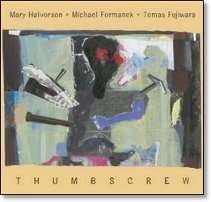 |
 |
 |
 |
 |
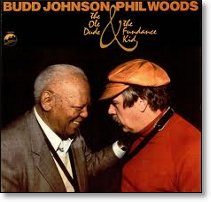 |
Music: Current count 22967 [22934] rated (+33), 599 [611] unrated (-12).
One more week like last and the ratings count will hit 23,000. I doubt that will happen, but 30+ weeks show I haven't made much progress weaning myself off writing about music, although it is starting to happen. The most common path to a 30+ week is a lot of quickies on Rhapsody (like last week's Johnny Cash orgy), but I'm pleased to note that I've knocked a dozen slots off the unrated list, dipping back below 600.
Exceptional number of A- records this week (seven) but only one arrived at my snail mail box (one more came as a download link from a publicist). I have to credit tracking down recommendations from other critics, and I'm actually a bit surprised that I only came up with seven. For instance, three B+ records here come from Chris Monsen's 2014: Favorites (Made to Break, Matt Bauder, and Lydia Loveless) -- Monsen reads my mind so efficiently I sometimes check his lists to see what I'm thinking, but none of those records quite did it for me. Laura Cantrell was recommended by Tatum and Gubbels. Several records showed up in Seth Colter Walls' monthly jazz picks at Rhapsody. The Mehldau I found while looking for the new one. Budd Johnson just fell out of the sky.
You shouldn't have to wait long to get write-ups: I'll run a Rhapsody Streamnotes column later this week -- possibly as early as Tuesday. Maybe I'll catch a break after that.
New records rated this week:
- Juhani Aaltonen: To Future Memories (2013 [2014], TUM): tenor sax/flute double threat [cd]: B+(***)
- Matt Bauder and Day in Pictures: Nightshades (2013 [2014], Clean Feed): edgy postbop [cd]: B+(***)
- Laura Cantrell: No Way There From Here (2013 [2014], Thrift Shop): country melodies [cd]: A-
- Michael Dessen Trio: Resonating Abstractions (2013 [2014], Clean Feed): avant trombone trio [cd]: B+(**)
- DKV + Mats Gustafsson/Paal Nilssen-Love/Massimo Pupillo: Schl8hof (2011 [2013], Trost): double avant-sax trio [r]: B+(**)
- Jean-Marc Foussat: L'Oiseau (2011-12 [2012], Fou): synths + bird chirps [cd]: B
- Jean-Marc Foussat, Sylvain Guérineau & Joe McPhee: Quod (2010 [2014], Fou): synths + saxes [cd]: B+(*)
- Jean-Marc Foussat & Ramón Lopez: Ça Barbare, Là! (2012 [2014], Fou): synth + drums [cd]: B+(**)
- Jean-Marc Foussat/Simon Hénocq: Nopal (2013 [2014], Fou): synth + guitar noise [cd]: B+(**)
- Tord Gustavsen Quartet: Extended Circle (2013 [2014], ECM): piano trio + tenor sax [cd]: B+(***)
- John Hollenbeck/Alban Darche/Sébastien Boisseau/Samuel Blaser: JASS (2013 [2014], Yolk): trombone-heavy free jazz quartet [r]: A-
- Mary Halvorson Trio: Ghost Loop (2012 [2013], ForTune): avant guitar [r]: B+(**)
- Mary Halvorson/Michael Formanek/Tomas Fujiwara: Thumbscrew (2013 [2014], Cuneiform): avant guitar [r]: A-
- Randy Ingram: Sky/Lift (2012 [2014], Sunnyside): piano trio + guitar [cd]: B+(**)
- Stan Kenton Alumni Band: Road Scholars Live (2013 [2014], Summit): gray hairs play modernish [cd]: B
- Jonas Kullhammar/Torbjörn Zetterberg/Espen Aalberg: Basement Sessions Vol. 2 (2012 [2014], Clean Feed): free sax trio [cd]: A-
- Lydia Loveless: Somewhere Else (2014, Bloodshot): very alt country [r]: B+(**)
- Made to Break: Cherchez La Femme (2013 [2014], Trost): Vandermark sax + electronics [r]: B+(***)
- Brad Mehldau Trio: Where Do You Start (2008-11 [2012], Nonesuch): piano trio art [r]: A-
- Brad Mehldau/Mark Guiliana: Mehliana: Taming the Dragon (2013 [2014], Nonesuch): Keybs-drums fusion [r]: B+(**)
- Pat Metheny Unity Group: Kin (2013 [2014], Nonesuch): guitar jazz [r]: B-
- Roscoe Mitchell: Conversations I (2013 [2014], Wide Hive): avant sax [r]: B
- Mike Reed's People, Places & Things: Second Cities Volume 1 (2013, 482 Music): Chicago-Amsterdam avant-jazz [r]: A-
- Ben Stolorow/Ian Carey: Duocracy (2013 [2014], Kabosha): piano-trumpet duets [cd]: B+(**)
- Tri-Fi [Phil Palombi/Matthew Fries/Keith Hall]: Staring Into the Sun (2013 [2014], self-released): piano trio [cd]: B
- Javier Vercher/Ferenc Nemeth: Imaginary Realm (2011 [2013], Dreamers Collective): sax-drums duo + piano [r]: B+(**)
Old records rated this week:
- Johnny Cash & Waylon Jennings: Heroes (1984-85 [1986], Columbia): Übermenschen blues [r]: B-
- Waylon Jennings/Willie Nelson/Johnny Cash/Kris Kristofferson: Highwayman (1984 [1985], Columbia): trading fours [r] B
- Waylon Jennings/Willie Nelson/Johnny Cash/Kris Kristofferson: Highwayman 2 (1989 [1990], Columbia): songs that make no difference [r]: B-
- Budd Johnson & Phil Woods: The Ole Dude & the Fundance Kid (1984 [1985], Uptown): mainstream sax jive [dl]: A-
Unpacking: Found in the mail last week:
- Lena Bloch: Feathery (Thirteenth Note)
- Deena: Rock River (Verbena Music): March 20
- Dominic J. Marshall Trio: Spirit Speech (Origin): March 18
- Leslie Pintchik: In the Nature of Things (Pintch Hard): March 25
- Dave Rempis/Darren Johnston/Larry Ochs: Spectral (Aerophonic): May 6
- Sara Serpa & André Matos: Primavera (Circle Music): April 25
- Zan Stewart: The Street Is Making Music (Mobo Dog): March 25
- Nelda Swiggett Stringtet: Blue-Eyed Painted Lady (Origin)<: March 18/li>
- Tigran: Shadow Theater (Sunnyside): advance, April 15
Sunday, March 16, 2014
My Oft-Proposed Music Website
It seems like I've written dozens of drafts of sketches of designs for a new music website, with this just one more step in the series. However, events -- admittedly not all that well understood by me -- have conspired to make this a do-or-die proposal. Or more likely, a final, soon-to-be-forgotten, stake in the ground.
In 2001 I built a website for Robert Christgau. By that time he had written three decade-spanning Consumer Guide books based on more than 30 years of more-or-less monthly columns. They totalled over 10,000 short album reviews with letter grades, so the first thing I wanted to do was to collect them into a database that could be queried in various ways: by artist, by title, by label, by release year, by grade, etc. I added to this an archive of Christgau's numerous essays (or "pieces"), grouping them variously by subject or publication. These, too, were indexed in a database, but I never wrote the code for flexible queries of that database, so they were only accessible by browsing directories or using search tools -- one of many unfinished design intents.
As I was working on the Christgau website, I came to recognize various flaws in the design or problematic limits, and started to think about how a Version 2 would address them. One big problem which has confounded me ever since is that my simple artist and label tables were overnormalized: in the real world there were extensive clusters of related artist (and label) names -- just to pick one example, Christgau has reviewed Peter Stampfel records released under eleven different artist name variations. It then becomes very difficult to turn those separate entries back into a coherent listing for Stampfel. (I did eventually come up with a hack for this problem but it isn't a proper solution.)
While I was thinking about the design of a Version 2 of the Christgau website, I was fleshing out a generalization of the same concepts that could be used for other writers to generate websites similar to Christgau's. I called this the Writer's Website Project. If you look at Hullworks.net you'll still see a slogan for the project ("Dedicated to making free content on the web cheaper") and a broken link promising further info. That project foundered on some fairly pedestrian technical problems -- e.g., I never got the user management code worked out, which is a basic piece of every CMS package ever developed. But I also didn't get a lot of writers to work with, some who were sympathetic had already tied themselves up with a paywall outfit called Rock's Back Pages, and I was getting increasingly sucked into my own writing.
Parallel to the above, I had been cobbling together my own website. I started in 1998 when I was working for SCO -- they hosted employee pages under the "ocston" disclaimer -- and I turned them into TomHull.com after I was sacked in 2000. One of the first things I did was to take an old file called "records.txt" which listed most of the records I owned and grades as best as I recalled and turn it into a primitive (flat-file) database. I added both new records as I heard them and recommended records from various references sources (the current totals are 48882 records listed and 22955 rated). I also collected my old rock critic writings into an archive. In 2003 I started adding to them by writing Recycled Goods, in 2005 the floodgates opened with Jazz Consumer Guide (and its spinoff Jazz Prospecting), and in 2007 Rhapsody Streamnotes. In the course of those three columns I've probably written over 10000 short reviews -- enough to stuff into my own Christgau-like database, if only I liked that database.
Several reasons I haven't done that yet. One is that while it would be handy for me personally to have such a database, I've become convinced that what the world needs is a music website where many people can come together to share their knowledge and opinions about music. Rather than doing something personal -- or, as the Writers Website Project proposed, having lots of people do something personal -- I would rather contribute my data as a seed for something other people can build on. One thing that has become clear to me is that while tracking individual critics has a distinct advantage in coherency, no single critic can cover a broad enough range to satisfy many other people.
On the other hand, I'm not looking to cover everything (like All Music Guide) or to take a neutral position (like Wikipedia). I'm looking at least for the coherency of a tribe -- a group of people who approach music in sufficiently similar ways that their opinions are likely to be of interest to each other. Who these people has never seemed like much of a problem -- I know dozens of obvious candidates -- not that getting them to work (and to work together) is easy. But it's long seemed to me that the basic principle of "build it and they will come" applies here. The problem has always been building it.
The following section is a brief sketch of his I imagined doing that:
When I built the Christgau website, I used the basic free software platforms of the time and coded the entire site from scratch. I used PHP as the coding language, and stored the data in a MySQL database (plus the file system). The web server itself was Apache, although I hardly did anything at that level. My first inclination has always been to follow that same approach, which meant expanding the website by developing an increasingly sophisticated data model. Indeed, most large music websites (e.g., All Music Guide, Discogs) are so closely bound to their data models that you practically reverse engineer them by looking at how the pages are organized. The major exception to this is Wikipedia, which has a vast amount of music information without any specialized data structures at all.
I ultimately decided that there are three main problems with the hard-coded "from scratch" development model:
- The data model is really hard to design and get right.
- The bigger a "from scratch" system gets the harder it is to maintain and evolve -- to add new features, etc.
- When working "from scratch" you wind up having to write a lot of extra support code (e.g., for common tasks like user roles) that is readily available in kit form.
Since I built the Christgau site, a lot of people have written, using the same free software tools, more general "content management systems" that can be used and then customized for a wide range of websites. I've used several such packages over the years, and they vary depending on what sort of interactions they support, how much collaboration, and how easy they are to customize. I did an extensive search and review of these packages 5-7 years ago, picked out a couple, and unfortunately they didn't work very well -- a setback. At this point I'm hopeful that two packages I don't yet have much experience with will work out better: Mediawiki and WordPress.
Mediawiki is the software used to implement Wikipedia, and web's vast online encyclopedia to everything. The main purpose of the music website is to provide a reference resource: an encyclopedic guide to all worthwhile (in the tribe's opinion) music. Mediawiki imposes no fixed structure on this, although it leans toward atomicity: one page per album, one page per artist with links to each album. Index pages can be grouped any way that makes sense: a list of albums under labels, a list of artists under genres, lists by year or period. One feature I regard as particularly important is recommended album lists, which again are just hand-edited lists. Adding a new feature, like a section on music books, is as simple as doing it.
Mediawiki is focused on collaboration, and by default allows anyone to edit pages (although this can be restricted). As protection against sabotage, it provides strong revision control. Each page has a discussion page, so you can keep a running log of notes about proposals for editing pages. It has useful templating features: it's very easy to create "stub" pages (e.g., when you need to add a musician or album) and it's easy to identify stub pages needing further revision. One could, for instance, start by generating stub pages and dumping my review data onto the discussion pages, relatively quickly creating a substantial start.
I have other questions about how to use Mediawiki: in particular, how to extend it. One essential part of the website is a rating system, combining the ratings of dozens or hundreds (or potentially thousands) of contributors. To do this we need a special database which has album information, grader information, and grades. The main complication to album data is release info, which sometimes matters for graders and often doesn't. I'm inclined to limit qualified graders to people who fill out a fairly extensive profile (not all of which need be public) and who are able to grade a substantial number of albums (at least 1000, maybe more). We would need hand-coded pages to maintain the database, and some code which can be embedded on Mediawiki pages to pull out the current grading summary. Also pages of links sorted by ratings data. From a development standpoint, the ratings database could be developed separately and merged at some future point.
We should also give some thought to licensing. I'm inclined to use a license compatible with Wikipedia to make it easy to move data back and forth, helping both websites.
Mediawiki provides fairly minimal tools for identifying recent changes, but they would make for a very dry news source. Accordingly, I suggest using WordPress in a blog mode for providing a news feed -- both about the reference site and on current music news. (I assume this would be more reviews than gossip or download links, but that may just be me. It could also have a non-review focus like Odyshape.) It looks to me like the front page of a WordPress site could present multiple streams (virtual blogs), so these could be blocked out with a reviews stream, one for news, one for reference site change activity, one for new ratings data, and so forth. Several of these may require custom code to be written to create custom plugins. (I haven't looked at the plugin interface, but there are several thousand plugins readily available, so how hard can they be?)
It's not clear to me whether there are any incompatibilities to running two CMS systems on one website: the packages are designed to install each in its own directory, both use MySQL but each picks a distinct table prefix so they can share the same database. The user systems would be distinct, resulting in the inconvenience of having two login names and passwords (but only if you work on both parts). Links from one part to the other may be a bit trickier, but no more so than linking to external websites.
I currently lease a fairly low-end dedicated server, so I assumed this site could be built there. And I own a usable domain name, TerminalZone.net, so there would be very little cost (work is another story) to setting up something. I never tried putting a business plan together, because I've never had a sense of how to raise money off such a website. One could, presumably, beg more money to buy more bandwidth if that becomes an issue, but funding staff (and freelance writers) is not something I personally worry about: while nice for those receiving, I'm not sure that it really helps much.
But then that may be one reason I'm just throwing this out, and expecting nothing to come of it.
After MSN dropped Robert Christgau's Expert Witness blog, I promised to write something about what I thought it would take in a music website for people of similar tastes to move forward in a post-Christgau world. This is (more or less) the post I had expected to write, but much water has passed under the bridge since then, including some things that may (or may not) be confidential (but that I don't understand well enough anyway). The stuff I do best understand is that I've dropped my Jazz Prospecting and Recycled Goods columns, so I've started to back peddle as a music critic, and will before long become as washed up as anyone else. (In the meantime, I have moved part of those efforts into Rhapsody Streamnotes, and have what I think is a very nice and possibly even useful column coming out next week.) So my personal desire to keep the world informed on new music has started to wane.
On the other hand, I am leaning towards doing more technical website work. I'm looking at WordPress for a couple very different applications. I'm also likely to do more programming, so I'm shifting focus a bit, and that's led me to described the website above more in terms of tools than content.
About two years ago several acquaintances asked me to put together some sort of webzine. We had, at the time, a mailing list with about a dozen names on it, but it gradually became inactive through nothing like a conscious decision. That could easily be resurrected to talk about this. As I said, I'd be willing to contribute some technical resources and coding skills (although possibly not up to the entire job) and a lot of data if other people would take it over and drive it forward. Nor am I terribly rigid about any aspect of this -- not that I haven't spent a lot more time thinking about this than the few hours it's taken to throw this post together.
Wednesday, March 12, 2014
Midweek Roundup
Meant to pull one of these together last Sunday, but I got sidetracked on the many horrors of gun mishaps.
Brad DeLong: The "Bush Boom" and the Obama Stagnation: Big chart contrasts the very different "recoveries" from the tech crash in 2000 and the housing/banking crash in 2008. The Bush period was slightly more productive than the Obama (3.2% vs. 2.8%), but both barely qualify as recoveries, and if you looked closer you'd find that virtually none of the gains trickled down to the majority of workers. But DeLong is more focused on component sectors, which show two things: the Obama period has actually been much more favorable for business than the Bush one -- exports and nonresidential investment are up, whereas all Bush had going was deficit war spending and a housing boom largely based on fraud; but what killed Obama has been the poltiically imposed austerity that not only kept government from compensating for the crash but actually added to it. DeLong concludes:
When the economic history of 2002-2020 comes to be written, it will be all about at least three extraordinary self-inflicted economic disasters: the deregulation of housing and high finance and the consequent Greater Crash of 2007-2009; the failure to nationalize and then rationalize housing finance and so restore the housing credit channel at any point starting in 2009; and the extraordinary counterproductive wave of short-term austerity beginning in late 2010.
Paul Krugman: Nation of CRINOs: Links to John Sides, quotes, and adds:
Sides surmises that when people call themselves conservative, they're talking about lifestyle choices -- and we're talking about their personal lifestyles, not necessarily their desire to impose their choices on others. Americans who go to church, and/or are faithful to their spouses, and/or are devoted to their children, say that they are conservative -- but more often than not also favor a higher minimum wage and stronger social safety net programs.
Basically, economic conservatism has very little popular constituency. If it has often dominated policy nonetheless, that has to do with the power of organized money and the popularity of conservative ideas among the political elite.
I'll add that a lot of Ronald Reagan's popularity among white middle class folk was because the feel-good rhetoric hadn't yet impacted their bottom lines. Also that the triumph of right-wing policy usually occurs behind closed doors, due to the easy corruptibility of our political system.
Joseph E Stiglitz: Stagnation by Design: One of the odder terms to have emerged in economic discourse lately is "secular stagnation" -- Larry Summers' term for a lengthy period of post-recession slow growth, much as Japan suffered after its real estate bubble burst in the 1980s.
This time is no different, but in some ways it could be worse: the sectors that should be growing, reflecting the needs and desires of citizens, are services like education and health, which traditionally have been publicly financed, and for good reason. But, rather than government facilitating the transition, austerity is inhibiting it.
Malaise is better than a recession, and a recession is better than a depression. But the difficulties that we are facing now are not the result of the inexorable laws of economics, to which we simply must adjust, as we would to a natural disaster, like an earthquake or tsunami. They are not even a kind of penance that we have to pay for past sins -- though, to be sure, the neoliberal policies that have prevailed for the past three decades have much to do with our current predicament.
Instead, our current difficulties are the result of flawed policies. There are alternatives. But we will not find them in the self-satisfied complacency of the elites, whose incomes and stock portfolios are once again soaring. Only some people, it seems, must adjust to a permanently lower standard of living. Unfortunately, those people happen to be most people.
Also, a few links for further study:
David Bromwich: The Leader Obama Wanted to Become and What Became of Him. A rather vague article poking around but never quite settling the basic evasiveness of Obama's presidency. The only sense you get of "the leader Obama wanted to become" is that there wasn't any. Backtracking through his previous posts you find a wily figure who prefers to be a tabula rasa onto which both friend and foe can project their hopes and fears, knowing that while he will never satisfy he'll never prove you wrong either. One representative paragraph (plus):
Perhaps the thin connection between Obama's words and his actions does not support the use of the word "conviction" at all. Let us say instead that he mistook his preferences for convictions -- and he can still be trusted to tell us what he would prefer to do. Review the record and it will show that his first statement on a given issue generally lays out what he would prefer. Later on, he resigns himself to supporting a lesser evil, which he tells us is temporary and necessary. The creation of a category of permanent prisoners in "this war we're in" (which he declines to call "the war on terror") was an early and characteristic instance. Such is Obama's belief in the power and significance of his own words that, as he judges his own case, saying the right thing is a decent second-best to doing the right thing. [ . . . ]
He cares far less about doing everything possible to uphold the Constitution (a word that seldom occurs in his speeches or writings). Nevertheless, if you ask him, he will be happy to declare his preference for a return to the state of civil liberties we enjoyed in the pre-2001 era. In the same way, he will order drone killings in secret and then give a speech in which he informs us that eventually this kind of killing must stop.
Ryan Gallagher/Glenn Greenwald: How the NSA Plans to Infect 'Millions" of Computers with Malware: A pretty detailed summary of NSA efforts to hack into computers, initially with "hundreds" of targets but increasingly aiming for "millions" -- the typical approach being to infect those target machines with malware, mostly to snoop but sometimes to damage them. The inside info comes from Edward Snowden's leaks, and if this is true it shows a government organization that has completely gone off the rails. Very scary stuff. And while I note that the picture at the top only shows the NSA attacks targeting the rest of the world, I can take no comfort from that. Among other things, the US is establishing a world norm where unbridled cyberwarfare is the order of the day -- a standard which practically begs Russia, China, and others to do the same unto us. We are already plagued with spambots and viral mischief coming out of those countries, something the US government should be working with others to suppress. Instead, the NSA is working to make the cyberworld a Hobbesian hell, and doing it in secret where most Americans never get the chance to second guess them.
Kathleen Geier: How Economic Inequality Kills: Reviews a recent book by Göran Therborn, The Killing Fields of Inequality (2013, Polity Press). Therborn sees inequalities as "multidimensional barriers to human functioning in the world," which makes them "violations of human rights" -- "human rights" being one of the quintessential equality definitions (something that most of us believe everyone should be equal in).
Farhad Manjoo: T-Mobile Turns an Industry on Its Ear: The cell phone industry, like cable TV, has always been a pursuit for monopoly profits, but having failed to get antitrust permission to merge, T-Mobile suddenly decided to compete and drive prices down. Especially since Bush became president (although to a large extent even before then) the government has made little effort to enforce antitrust law, let alone to take an active role in fostering competitive markets, so this is a most welcome example.
Josh Ruebner: Overcoming the "Manufactured Crisis" with Iran: A review of Gareth Porter important new book, Manufactured Crisis: The Untold Story of the Iran Nuclear Scare. No surprise that the picture on the cover is that of Benjamin Netanyahu with a ticking bomb graphic. Trita Parsi has written two earlier books on Israel's obsession with Iran (Treacherous Alliance: The Secret Dealings of Israel, Iran, and the United States in 2007, then A Single Roll of the Dice: Obama's Diplomacy with Iran in 2012), but this book brings the conflict -- perhaps the most dangerous in the world today -- up to date. As Ruebner writes:
Porter unravels a complicated, sordid tale in which the United States and Israel -- sometimes separately and sometimes symbiotically -- act to ensure the perpetuation, rather than the resolution, of outstanding concerns about Iran's nuclear program.
Jerome Slater: On John Judis's 'Genesis,' and its critics: Next on my reading list is John Judis' new book, Genesis: Truman, American Jews, and the Origins of the Arab/Israeli Conflict. This is less a review of the book than a review of the usual negative reviews, including ones by Leon Wieseltier, Bernard Wasserstein, and Ronald Radosh (whose own book on Truman and Israel basically cast Truman as a pro-Israel saint, when in fact there was a great deal of ambivalence throughout Truman's administration). I personally expect to find the origins of conflict much earlier -- I'm rather partial to Amy Dockser Marcus' Jerusalem 1913: The Origins of the Arab-Israeli Conflict, which not only specifies that early date but makes clear that it was decided in Vienna and not in Palestine -- but the 1945-49 period does appear to be the crucial one for the formation of the Zionist lobby in America. For more on Judis' book, see Heather Hurlburt: Broken Promised Land. And for more on Wieseltier, albeit in a different theater of warmongering, see Jim Sleeper: Leon Wieseltier's Moral Posturing on Crimea Suggests He Learned Nothing From his Moral Posturing on Iraq.
Monday, March 10, 2014
Music Week
 |
 |
 |
 |
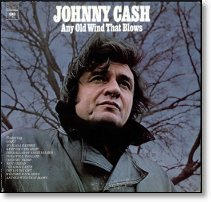 |
 |
Music: Current count 22934 [22882] rated (+52), 611 [614] unrated (-3).
I can't say that I'm fully recovered from the Florida trip. For one thing, I still have in front of me a large pile of notes, maps, and bills from which I meant to reconstruct an itinerary of the trip. I also meant to finally unpack the CD cases so that next trip, for the first time in five years or so, I can start out fresh. Since I got back the weather has been crazy up and down, ranging from sub-zero to today's 72F. The initial blizzard when I returned made me want to hibernate, but a couple days ago it was warm enough I finally washed the car, then it got cold again, now warm again.
This week's rated count is way over the top, but most of it comes from an in-depth exploration of Johnny Cash's Columbia albums. I've wanted to do Cash for a long time. I put his name on my request list for the New Rolling Stone Album Guide but someone else grabbed him. (I wound up with George Jones and Willie Nelson.) Back in 2012 I begged Legacy for a review copy of Cash's 63-CD Complete Columbia Collection, to no avail. Then last week, while trolling through Rhapsody's "new country" list, I noticed a bunch of reissued Cash, so figured this might be the time to dig in. I had, after all, played quite a bit of Cash on the Florida trip -- including all four discs of The Legend. I tried to take the albums in chronological order, skipping compilations and some of the gospel. And they went fast: aside from the live albums, I doubt that more than five 1958-85 albums cracked 30 minutes, even near the end when the under-2-minute songs of the 1950s had gone extinct. Not everything is on Rhapsody yet, but most of it is there. I didn't bother with the Sun or Mercury albums, or his final act with Rick Rubin -- all of the latter and most of the others are in the ratings database already. Full report in the next Rhapsody Streamnotes (probably mid-month, given how fast they're piling up).
Still not finding many 2014 releases of note, other than among the jazz releases that are still finding me. With no metacritic file this year, I've started a much simpler tracking list to remind myself of what's out there. Thus far it's mostly assembled from AMG and Metacritic, certainly not the most reliable sources out there. Nothing there that I've already rated, so it's not likely to be that useful to you.
One more point worth noting: I keep running into people who recommend WordPress as a web publishing platforms, so I'm finally taking a serious look at it, in the context of several projects, including the currently stalled Terminal Zone and Notes on Everyday Life, and perhaps most urgently for Wichita Peace. Most projects need both a news series (last-in first-out, like a blog) and a cluster of static pages. WordPress is commonly used as a blog, so I need to explore how viable it is for reference pages. (For the music site, my thinking is that Mediawiki is the superior tool, but overkill for a less expansive site.) I'll also need to look into the plugin interface and possibly build something (especially for the music site). I also need to look at the commenting system. I've been using Serendipity for my blog (and several others), and its handling of comments has been pretty close to useless. If anyone has much experience with WordPress, especially going beyond the ordinary, I'd be interested in hearing from you.
New records rated this week:
- Jeff Ballard Trio: Time's Tales (2013 [2014], Okeh): postmodern guitar-sax-drums [cd]: B+(***)
- Raoul Björkenheim: Ecstasy (2012 [2014], Cuneiform): free-fusion guitar-sax quartet [dl]: B+(***)
- Regina Carter: Southern Comfort (2013 [2014], Sony Masterworks): southern fiddle jazz [cd]: A-
- Kris Davis Trio: Waiting for You to Grow (2013 [2014], Clean Feed): avant piano trio [cd]: A-
- Scott Hamilton Quartet: Dean Street Nights (2012 [2014], Woodville): retro-swing [r]: B+(**)
- Stephen Malkmus & the Jicks: Wig Out at Jagbags (2014, Matador): post-Pavement singer-songwriter [r]: B+(**)
- Modern Baseball: You're Gonna Miss It All (2014, Run for Cover): alt/indie rock [r]: B+(***)
- The Jim Olsen Ensemble: We See Stars (2013 [2014], OA2): smallish big band [cd]: B+(**)
- Ark Ovrutski: 44:33 (2013 [2014], Zoho): bassist-led postbop [cd]: B+(*)
- Ulysses Owens Jr.: Onward & Upward (2013 [2014], D Clef): postbop [cd]: B+(*)
- Chris Parker: Full Circle (OA2): postbop quintet [cd]: B+(**)
- Adrian Raso and Fanfare Ciocarlia: Devil's Tale (2013 [2014], Asphalt Tango): gypsy guitar and Balkan brass [dl]: B+(***)
- The Souljazz Orchestra: Inner Fire (2014, Strut): Latin funk Canadian style [r]: B+(*)
Old records rated this week:
- Johnny Cash: Songs of Our Soil (1958-59 [2002], Columbia/Legacy): dirt-poor folk songs [r]: A-
- Johnny Cash: Ride This Train (1959-60 [2002], Columbia/Legacy): "a stirring travelogue of America" [r]: B+(**)
- Johnny Cash: The Sound of Johnny Cash (1961-62 [1962], Columbia): covers mostly, hooked to that sound [r]: B+(*)
- Johnny Cash: Blood, Sweat and Tears (1962 [1963], Columbia): working songs [r]: B+(***)
- Johnny Cash: Ring of Fire: The Best of Johnny Cash (1958-63 [1963], Columbia): odds and sods [r]: B+(**)
- Johnny Cash: Bitter Tears: Ballads of the American Indian (1964, Columbia): bitter history [r]: A-
- Johnny Cash: Orange Blossom Special (1964 [2002], Columbia/Legacy): when Cash discovered Dylan [r]: B+(*)
- Johnny Cash: Sings the Ballads of the True West (1959-65 [2002], Columbia/Legacy): frontier songs [r]: B+(***)
- Johnny Cash: Everybody Loves a Nut (1965-66 [1966], Columbia): but not all nuts are funny [r]: B
- Johnny Cash & June Carter: Carryin' On With Johnny Cash & June Carter (1967 [2002], Columbia/Legacy): gettin' married [r]: B+(**)
- Johnny Cash: The Johnny Cash Show (1970, Columbia): live with strings [r]: B+(*)
- Johnny Cash: I Walk the Line [Soundtrack] (1970, Columbia): arty soundtrack [r]: B
- Johnny Cash: Little Fauss and Big Halsy [Soundtrack] (1971, Columbia): folkie soundtrack [r]: B+(*)
- Johnny Cash: Man in Black (1971, Columbia): solidarity with the downtrodden [r]: B+(***)
- Johnny Cash: A Thing Called Love (1972, Columbia): typical fare [r]: B
- Johnny Cash: Johnny Cash På Österåker (1972 [2007], Columbia/Legacy): live in a Swedish jail [r]: B+(**)
- Johnny Cash: Any Old Wind That Blows (1973, Columbia): "Oney" and more [r]: A-
- Johnny Cash & June Carter Cash: Johnny Cash and His Woman (1973, Columbia): spotlight for a backing singer [r]: B
- Johnny Cash: Ragged Old Flag (1974, Columbia): worried man [r]: B
- Johnny Cash: Johnny Cash Sings Precious Memories (1975, Columbia): gross gospel [r]: C-
- Johnny Cash: John R. Cash (1975, Columbia): operation mersh backfires [r]: B
- Johnny Cash: Look at Them Beans (1975, Columbia): back to ordinary [r]: B+(*)
- Johnny Cash: Strawberry Cake (1975 [1976], Columbia): live in London [r]: B+(**)
- Johnny Cash: One Piece at a Time (1976, Columbia): factory perks [r]: B+(***)
- Johnny Cash: The Last Gunfighter Ballad (1976 [1977], Columbia): western and country [r]: B+(**)
- Johnny Cash: The Rambler (1976-77 [1977], Columbia): the road goes on forever [r]: B
- Johnny Cash: I Would Like to See You Again (1976-77 [1978], Columbia): from Gene Autry to Waylon Jenings [r]: B+(**)
- Johnny Cash: Silver (1979 [2002], Columbia/Legacy): along came Jones [r]: B+(*)
- Johnny Cash: Rockabilly Blues (1979-80 [1980], Columbia): losing his sound [r]: B
- Johnny Cash: The Baron (1980-81 [1981], Columbia): Cash goes countrypolitan [r]: B
- Johnny Cash/Jerry Lee Lewis/Carl Perkins: The Survivors Live (1981 [1982], Columbia): rockabilly revival [r]: B
- Johnny Cash: The Adventures of Johnny Cash (1981-82 [1982], Columbia): cranking out solid product [r]: B+(*)
- Johnny Cash: Johnny 99 (1983, Columbia): Cash discovers Springsteen [r]: B+(*)
- Johnny Cash: Rainbow (1984-85 [1985], Columbia): into the rut [r]: B-
- Gene Ludwig-Pat Martino Trio: Young Guns (1968-69 [2014], High Note): organ trio overdrive [cd]: A-
Sunday, March 09, 2014
Guns: The Laundry List
 I was looking for links for a Weekend Roundup post tomorrow, and came
across one in Talking Points Memo about a woman who was killed while
doing laundry: a gun fell out of a sock and fired, hitting her. I know
TPM has run a number of similar items over the years. I particularly
remembered one where a 4-year-old killed his father, a veteran. I linked
to that item and quipped that if the father had only had his own gun,
he could have defended himself. Of course, that's ridiculous, but the
notion that having a gun will let you defend yourself is at best a very
slender hope, depending on perceptions and skills that few if any people
have, and more than a little good luck. In particular, you can't defend
against accidents. All you can really do is to prevent them, which in
the case of guns usually means keeping them locked up and/or unloaded --
or not having them around in the first place.
I was looking for links for a Weekend Roundup post tomorrow, and came
across one in Talking Points Memo about a woman who was killed while
doing laundry: a gun fell out of a sock and fired, hitting her. I know
TPM has run a number of similar items over the years. I particularly
remembered one where a 4-year-old killed his father, a veteran. I linked
to that item and quipped that if the father had only had his own gun,
he could have defended himself. Of course, that's ridiculous, but the
notion that having a gun will let you defend yourself is at best a very
slender hope, depending on perceptions and skills that few if any people
have, and more than a little good luck. In particular, you can't defend
against accidents. All you can really do is to prevent them, which in
the case of guns usually means keeping them locked up and/or unloaded --
or not having them around in the first place.
I'm not much interested in making a policy argument regarding gun control, at least not here. But I'm pretty sure there's a lot of faulty thinking on the subject. In particular, many people -- at least on the pro-gun side -- overestimate the utility and underestimate the risks of guns. Looking around I'm finding it impossible to find good statistical data, but TPM has been active -- how thorough cannot be clear without more data -- in noting anecdotal evidence of gun "accidents," especially involving children. I thought it might be useful to compile a few links to TPM articles on gun-related accidents. I limited my search, going back no further than January 2013, and came up with about 50 incidents, as follows:
- Woman dies when gun falls out of sock and shoots her [2014-03-08]
- Woman says she accidentally shot boyfriend while trying to move out [2014-03-06]
- Teen playing with gun accidentally fires into neighbor's home [2014-03-05]
- 5 year-old boy accidentally shoots and kills himself in California [2014-03-05]
- Georgia man accidentally shot cousin to death when gun fell from lap [2014-03-03]
- 5-year-old accidentally shot father in Oklahoma store [2014-03-03]
- Ohio boy fatally shoots brother with handgun he thought was a BB gun [2014-03-02]
- Man fatally shoots himself while teaching gun safety to girlfriend [2014-02-24]
- Blind man acquitted of fatally shooting friend gets gun back [2014-02-24]
- Man accidentally shoots himself right after gun safety class [2014-02-21]
- Man finds gun near trash can, immediately shoots himself in the abdomen [2014-02-18]
- Off-duty officer's gun discharges in 'shooters' cafe, injures 9 [2014-02-18]
- Man who accidentally shot self in arm faked story about robbery [2014-01-30]
- Police chief accidentally shoots himself at gun shop, blames fleece jacket [2014-01-20]: note: not the first time he managed to shoot himself.
- Two Philadelphia high school students shot; boy held [2014-01-17]
- Detroit girl, 4, fatally shoots 4-year-old cousin [2014-01-17]
- Arizona father accidentally shoots child while cleaning his gun [2014-01-16]
- 4-year-old accidentally shoots cousin with gun found under bed [2014-01-16]
- Man fatally shot at Fla. theater over texting [2014-01-14]
- Father accidentally shoots 3-year-old boy in the head [2014-01-14]
- 8-year-old accidentally shot in stomach in Oregon [2014-01-13]
- KY Rep. accidentally fired gun in state capitol: 'I am a gun owner. It happens' [2014-01-08]
- Man accidentally shoots self, friend in busy restaurant [2014-01-06]
- Guy reaches for wallet, ends up shooting himself in the butt [2013-12-30]
- 14-year-old shot in face in reported accident [2013-12-27]
- 2-month-old infant shot dead on Christmas Eve [2013-12-26]
- Arizona child dies after shooting himself with father's misplaced gun [2013-12-23]
- Mom shot by toddler while trying to take back gun [2013-12-13]
- Kentucky man sets gun on toilet paper dispenser while using restroom, gun goes off [2013-12-09]
- 5-year-old accidentally shoots himself with handgun [2013-12-01]
- Man shoots self in hand while forcing wrong caliber ammo into gun [2013-11-26]
- 7-year-old boy in Dallas accidentally shot by 13-year-old brother [2013-11-25]
- Man firing paintball gun in Chicago shot by man with real gun [2013-11-01]
- 4-year-old shoots aunt with handgun left unattended [2013-10-25]
- Virginia boy shot in face after handling gun while home alone [2013-10-10]
- Illinois teen fatally shot by friend in reported accident [2013-10-08]
- Police: Boy shoots 8-year-old brother in head in Pa. home [2013-09-04]
- 3-year-old fatally shot by father's gun in Yellowstone Park [2013-09-09]
- 4-year-old Michigan boy dead after shooting himself in the head [2013-08-19]
- Little Rock 8-year-old accidentally shot by 13-year-old cousin [2013-08-08]
- 3-year-old shoots 5-year-old boy in Louisiana [2013-08-02]
- Police say two men accidentally shot at Arkansas gun show [2013-07-29]
- 15-year-old in critical condition after accidental shooting [2013-07-10]
- Virginia boy shot in head after someone fired gun in the air [2013-07-05]
- 12-year-old shoots 9-year-old brother, then shoots himself in Ohio [2013-06-27]
- 9-year-old Ohio boy dies in shooting accident [2013-06-22]
- 4-year-old boy accidentally shoots, kills army vet father in Arizona [2013-06-10]
- 10-year-old San Diego boy fatally shot after playing with gun [2013-06-05]
- Florida 4-year-old shoots off part of his finger with gun he found on couch [2013-06-03]
- 2-year-old boy accidentally shot in N.C. [2013-05-20]
- 22-year-old woman killed in assault rifle accident [2013-05-17]
- Father stripping gun shoots 1-year-old in chest [2013-05-15]
- 11-year-old New Jersey boy shoots 12-year-old in the face [2013-05-10]
- 2-year-old fatally shoots himself in Texas [2013-05-09]
- 3-year-old fatally shoots himself with uncle's gun in Florida [2013-05-08]
- 2-year-old girl shot, killed by 5-year-old brother with rifle he received as a gift [2013-05-01]
- 11-year-old accidentally shoots and kills 13-year-old with unattanded gun [2013-04-15]
- 6-year-old boy shot by 4-year-old in New Jersey has died [2013-04-10]
- Four-year-old shoots, kills deputy's wife at Tennessee cookout [2013-04-09]
- 8th grader dead after shooting self in head at middle school [2013-03-21]
- Five injured in accidental gun show shootings on 'Gun Appreciation Day' [2013-01-19]
One more TPM link: I Have No Words, a letter from a reader who at age 15 accidentally shot and killed his best friend.
I'll add a personal note. When I was a teenager, one of my closest friends shot himself in the foot. And one of my first wife's closest friends shot himself in the leg, resulting in permanent disability. That, to say the least, is an eerie coincidence for such an allegedly rare event.
Some notes on my (admittedly brief) efforts to dig up data:
- Just Facts has a page relating to "gun control" issues. There is useful data here and the presentation is studiously neutral, but the data sources are very selective, many of them quite old. For instance, based on a 1993 study they estimate that "0.5% of households had members who had used a gun for defense during a situation in which they thought someone 'almost certainly would have been killed' if they 'had not used a gun for protection.'" Multiplying this against the current US population, they estimate that there are 162,000 such incidents per year (excluding military, police, and security guards). There are about 11,000 murders with firearms each year, so they are asserting that citizens with firearms defended against 15 potential murders for each one actually committed. That doesn't strike me as a credible multiplier. There are many other examples. Elsewhere the people running the website admit to a "conservative/libertarian" bias.
- Real Clear Policy has a piece on "How Common Are Child Gun Accidents by Robert VerBruggen (who also writes for National Review, so you know what his agenda is). He comes up with an estimate of 124 child fatalities per year from gun accidents, and then seeks to trivialize that number ("a swimming pool on your property is 100 times more likely than a gun to kill your child by accident . . . and swimming pools don't pose the constitutional and self-defense tradeoffs that guns do." (Maybe this is just me, but as best I recall as a child and adolescent I used swimming pools about a hundred times more often than I did guns -- and I grew up in a house with no shortage of guns, and I did go hunting and shoot guns once I was in my teens. Had we had our own swimming pool the ratio would have been even greater.)
- The New York Times has a piece published in September 2013 called "Children and Guns: The Hidden Toll" which shows that CDC counts of child deaths due to gun accidents are undercounted.
- MomLogic ("what moms are talking about") states that "more than 500 children die annually from accidental gunshots." I don't see where that number comes from, but we might take it provisionally as an upper bound. I didn't count how many of TPM's examples involve children, but if half, say, they managed to report on about 20% of the lower (124) number, or 5% of the higher number.
I will note that given how many guns there are in the US, most owners do appear to take responsible precautions against accidents, otherwise we'd be seeing many, many more horrific "accidents" -- although each and every example above cries out for more assessment of the risks and more diligence over safety measures. (I don't see any example above that could not have been prevented by someone acting with due diligence and caution.) The bigger question for me is the positive utility of having those guns. I don't have that question about automobiles or swimming pools: sure, they entail risks that have to be taken very seriously, but on balance they are very worthwhile and desirable things. It's not clear to me that guns are.
Friday, March 07, 2014
The Ukraine Cauldron
I rarely pay any attention to news when I travel, and my recent trip to Florida was no exception. When I left I was vaguely aware of violently repressed anti-Russian (aka "pro-West") protesters in Ukraine, but when I got back to Wichita the table had flipped with Ukraine's Prime Minister (democratically elected, as best I recall) ousted and exiled to Russia, while a new "caretaker" government had taken over and was, in turn, violently repressing pro-Russian (aka "anti-West") protesters. Russian President Vladimir Putin, in turn, had become very upset, and intervened militarily taking control of the Crimean peninsula -- with an invite from the regional government there, and aided by the fact that Russia already had a substantial military presence in Crimea.
As usual, outsiders see events like this through their pre-existing lenses, which in the US mostly means the relics of the "Cold War" -- the anti-Communist ideology that drove America's security state to seek worldwide hegemony. The issue is no longer economic: Russia adopted a particularly brutal form of privatized capitalism following the dissolution of the Soviet Union, but remained more/less isolated from the neoliberal international system, and after Putin came to power resumed thinking of itself as an autonomous regional (if not world) power. Meanwhile, neocons in the US shifted their focus from economic to military hegemony, seeking to contain and marginalize any nation that had not aligned itself under US military command.
As such, they were more focused in extending NATO -- which with the end of the Cold War seemed to have no reason for continued existence -- through eastern Europe to the former SSRs than they were interested in pushing economic integration. Russia, quite reasonably, regarded such efforts to expand NATO as a challenge to its own autonomy. The Ukraine has turned out to be a focal point in this US-Russia struggle because popular opinion there is closely divided between pro- and anti-Russian factions, with each able to draw in foreign alliances by catering to the prejudices of Moscow and Washington. That, in turn, results in overreactions by all parties.
I was thinking about doing a piece collecting various links, but one article stands out: Anatol Lieven: Why Obama Shouldn't Fall for Putin's Ukrainian Folly [March 2]:
We're now witnessing the consequences of how grossly both Russia and the West have overplayed their hands in Ukraine. It is urgently necessary that both should find ways of withdrawing from some of the positions that they have taken. Otherwise, the result could very easily be civil war, Russian invasion, the partition of Ukraine, and a conflict that will haunt Europe for generations to come. [ . . . ]
During George W. Bush's second term as president, the U.S., Britain, and other NATO countries made a morally criminal attempt to force this choice by the offer of a NATO Membership Action Plan for Ukraine (despite the fact that repeated opinion polls had shown around two-thirds of Ukrainians opposed to NATO membership). French and German opposition delayed this ill-advised gambit, and after August 2008, it was quietly abandoned. The Georgian-Russian war in that month had made clear both the extreme dangers of further NATO expansion, and that the United States would not in fact fight to defend its allies in the former Soviet Union. [ . . . ]
Over the past year, both Russia and the European Union tried to force Ukraine to make a clear choice between them -- and the entirely predictable result has been to tear the country apart. Russia attempted to draw Ukraine into the Eurasian Customs Union by offering a massive financial bailout and heavily subsidized gas supplies. The European Union then tried to block this by offering an association agreement, though (initially) with no major financial aid attached. Neither Russia nor the EU made any serious effort to talk to each other about whether a compromise might be reached that would allow Ukraine somehow to combine the two agreements, to avoid having to choose sides.
President Viktor Yanukovych's rejection of the EU offer led to an uprising in Kiev and the western and central parts of Ukraine, and to his own flight from Kiev, together with many of his supporters in the Ukrainian parliament. This marks a very serious geopolitical defeat for Russia.
Many Americans are so fond of zero-sum games that they assume any "serious geopolitical defeat for Russia" is a net gain for the US -- a sense reinforced by sixty years of unrelenting Cold War propaganda. That's very foolish: a crippled Russia is more desperate and dangerous, more estranged from international norms, and more likely to provoke worse behavior from the US -- a superpower with a notoriously weak sense of international law, scant appreciation that such law holds the key to a stable future, and none that Americans might actually benefit from some constraints.
The neocon notion that a superpower can impose its vision of how political economies should work on foreign peoples has proven to be a disaster, most obviously in Afghanistan and Iraq, where the US spent so many billions of dollars and sacrificed thousands of soldiers. That lesson hasn't sunk in, least of all for morons like John McCain, who was so eager to send troops to defend Georgia in 2008, but at least those currently in control recognize that American power is limited -- in particular, an army that can't manage a few thousand Taliban has no itch to take on nuclear-armed Russia or China.
Still, the Obama administration hasn't done much to reassure us of its sanity. They've moved token armed forces into position close to Russia. Secretary of State Kerry has pushed for economic sanctions against Russia -- "war by other means" but still hostile with an aim toward crippling -- while his predecessor, probable future president Hillary Clinton, has absent-mindedly likened Putin to Adolph Hitler. (The problem isn't just historical. The US waged total war against Hitler, insisting on nothing short of unconditional surrender. When Bush I painted Saddam Hussein as "just like Hitler" he set up an expectation for victory that his 1991 Gulf War couldn't deliver, a shortsightedness that Bush II felt the need to remedy in 2003.)
One more point: intervention, and its ill effects, didn't start with Putin seizing Crimea. It goes back to when the Ukraine became independent, split off from the Soviet Union, with NATO expansion a particularly aggressive move by the US. Moreover, apprehension and bad blood wasn't inevitable after the collapse of the Soviet Union. One of the main ways the US irritated Putin was the program to install a US-controlled anti-missile defense network in Poland during the Bush II years. This should remind us all once again: conflicts don't begin with war; rather, war is the shameful and disastrous failure of parties to solve conflicts before they get out of hand.
More links:
- Uri Avnery: Israel and Ukraine: More luck for Netanyahu as Ukraine provides yet another distraction for Kerry's "peace mission" -- indeed, the crisis has not only sapped Kerry's attention, it's turned him into a blathering neocon posturing against the only statesman who could have helped with the now-forgotten Syrian crisis. Avnery includes a useful historical survey, which doesn't leave anyone wearing white hats.
- William Boardman: US Provokes Russia, Acts Surprised to Get Nasty Reaction: Covers most aspects of the crisis, including the fact that Russia didn't have to invade Crimea: they already had troops stationed there, by long-standing agreement with Ukraine, much as the US has troops in Germany and Japan.
- Patrick J Buchanan: Hillary, Hitler, and Cold War II: Gives Hillary more credit than I would, but that's because Buchanan's more sympathetic to Hitler. I'd be inclined to downplay Putin's concerns "as protector of the ethnic Russians left behind when the Soviet Union came apart" because I don't see him as a racist or ethnic bigot, unlike Hitler (or even Buchanan). There are, after all, ethnic Russians scattered all over the former SSRs (and there are many non-Russians left in Russia). Rather, his concern is with the economic and political power of the Russian state. The Ukraine matters to Putin not because there are lots of ethnic Russians living there but because the Ukraine is one of Russia's largest trading partners, and because Russia's security is tied to its Crimean naval bases.
- Chris Floyd: Oligarchs Triumphant: Ukraine, Omidyar and the Neo-Liberal Agenda: More background on the pressure the west introduced to provoke the crisis and the coup against Yanukovich. Floyd identifiers E-Bay founder Pierre Omidyar as one of the key oligarchs here -- we're not really used to private individuals acting on a geopolitical scale, but I readily recall examples like Sanford Dole in Hawaii and United Front in Guatemala.
- John Glaser: Kissinger: Leave Ukrain to Ukrainians: An intro to the infamous war criminal's Washington Post op-ed on the crisis, which is distinguished by a deeper understanding of the relevant history and of diplomatic nuance than is common among "experts" today. Key line: "the demonization of Vladimir Putin is not a policy; it is an alibi for the absence of one." Recommendations are reasonable too.
- Jim Lobe: US Hawks Take Flight Over Ukraine: A useful summary of neocon blathering over Ukraine, although you get the sense that they are happier slamming Obama for weakness and incompetence than they would be if he actually did something, not least something that they themselves recommended. Moreover, they are less concerned with rolling back Russia's position than they are with setting an example reinforcing the world's perception of American recklessness and lawlessness.
- John Feffer: Ukraine: The Clash of Partnerships: Argues that the stakes here are not just whether Ukraine leans east or west but whether Russia joins the worldwide trend toward liberal democracy or is further isolated. He might have added "like the Soviet Union" -- unreconstructed cold warriors (like McCain) argue that the Cold War never ended, but through their rhetoric and acts what they are doing is constructing another one.
- Andrew Wilson: Tatar Sunni Muslims pose a threat to Russia's occupation of Crimea: The Tatar minority is only 13% of Crimea's population, but has been there longer than any of the others, formerly ruled the Crimean Tatar Khanate (1441-1783), and recall being treated particularly badly by Stalin.
Thursday, March 06, 2014
Anti-Interventionists
Started writing this on March 2, but didn't get it worked out. Wrote the last paragraph fragment on March 6.
One thing that tends to happen when I'm on the road is that I pay virtually no attention to news. My internet access is limited, I play CDs instead of listening to the radio, and I almost never consider turning a TV on. One exceptional example was the weeks or I spent in Detroit in September-October 2008 working on my sister-in-law's house: at some point I happened to glance at a TV while I was waiting for some takeout BBQ and was shocked to notice that the stock market index had dropped more 3,000 points since I'd last noticed: the post-Lehman economy had collapsed and I hadn't even noticed it.
During the last couple weeks I've been only vaguely aware that anything was happening in the Ukraine. (That I was aware at all was because I spent the middle week with my wife, who never ever takes a break from the news. Indeed, it seems like she spent most of the time I was driving and birdwatching studying her twitter feeds and reading me most of Billmon's tweets.) What I do know is that there has been a period of anti-government protests that have often been met with police brutality, that the nation's elected president was ultimately deposed and later surfaced in Russia, and that Russia had intervened by taking military control of the majority-Russian Crimean peninsula. This has in turn spurred the US government to cajole and threaten Russia -- including State Secretary Kerry's insistence that all options are on the table -- while the usual warmongers like Lindsey Graham and John McCain blame Obama's wimpiness and are itching to turn this into a shooting war.
I don't have any real insights to offer about the Ukraine, nor even much that I am certain of regarding Putin's designs or intentions. But I do have an opinion on the following comment by Paul Woodward:
I guess Russia's move will render most of the anti-interventionists mute since the only interventions anyone feels moved to speak out against are those backed by the United States. "Down with American intervention!" "Intervention by anyone else -- who cares?"
I suppose I can be counted as an "anti-interventionist" who focuses on opposing American interventions, although I certainly don't subscribe to "who cares" when nations other than the US intervene in the affairs of other countries. I'm hard pressed to give any examples where foreign intervention has been a good thing. (As I recall, Chomsky regards India's 1971 intervention in support of independence for Bangla Desh as one such case, but that was extremely unusual and certainly can't be credited to good intentions: India saw its move as a way to cripple Pakistan.) There are a number of reasons why intervention is almost never helpful. Notably, it's almost impossible to launch an intervention without a selfish agenda -- democratic, neutral, and benign nations rarely have the capability much less the will to intervene. And even if one's intentions are laudable, the use of force inevitably tarnishes the action, leading to all sorts of unintended consequences.
The reason the US gets singled out is that the US intervenes more often and more powerfully than any other nation, and that the US often has an explicitly hegemonic and ideological agenda, and those goals require more coercion and manipulation than is necessary to simply establish civil order and popular government. But the US is hardly alone in that regard. Russia has a similarly long history of sending troops into neighbouring countries, notably its 18th- and 19th-century efforts against the Ottomans, Poles, Balts and Finns, not to mention the "Great Game" along the Asian border with the British Empire.
Monday, March 03, 2014
Music Week
Music: Current count 22882 [22868] rated (+14), 614 [596] unrated (+18).
Only a couple days since I got back from Florida, so not much here. That the quality level is fairly high owes to Michael Tatum, who found and reviewed most of this week's newly rated albums. Sure, I'm less enthusiastic -- even New Mendicants is marginal for me, but it's the first non-jazz 2014 release to crack my A-list. On the other hand, Revolutionary Snake Ensemble is my sixth A- jazz record this year. Sure, at this pace I'll wind up with barely more than a third as many A- records as last year. I'm not opposed to the notion that 2014 is off to a slow start, but the main factor is that I'm getting to fewer albums this year. The 2014 list currently has 83 records rated, a pace that would leave me shy of 500 -- less than half last year's total. So maybe I am hanging it up -- or at least taking it easy.
Last two weeks I only listened to music in the car, and only played previously rated CDs. Few sounded better to me than the Maria Muldaur album that I decided to bump up. Granted, the line about Obama didn't pan out, but just this week John McCain reminded us again why he would have been the worst president in US history. The difference between Obama and McCain is very similar to McGeorge Bundy's characterization of the foreign policy difference between Kennedy and Johnson: JFK wanted to be viewed as smart, where LBJ insisted on proving he was tough. That impulse was what let the hawks push Johnson into such a disastrous situation in Vietnam. So it shouldn't be surprising that hawks nowadays are preoccupied with challenging Obama's virility. Of course, to win a comparison with McCain, Obama needn't be very smart -- sane suffices.
Unpacking covers two weeks, everything since February 17. Still getting more stuff than I expected, plus a lot of download links I haven't had time to pursue.
 |
 |
New records rated this week:
- Against Me!: Transgender Dysphoria Blues (2014, Total Treble): post-punk [r]: B+(**)
- Katy B: Little Red (2014, Columbia): UK dance pop [r]: B+(***)
- Bruce Barth: Daybreak (2014, Savant): mainstream piano jazz [cd]: B+(**)
- Tyrone Birkett/Emancipation: Postmodern Spirituals: The Promised Land (2013 [2014], Araminta Music): gospel sax with some vocals [cd]: B+(**)
- Toni Braxton & Babyface: Love Marriage & Divorce (2014, Motown): concept album in neo-soul [r]: B+(***)
- Neneh Cherry: Blank Project (2014, Smalltown Supersound): oblique electropop [r]: B+(***)
- Jennifer Nettles: That Girl (Mercury Nashville): country diva [r]: B
- The New Mendicants: Into the Lime (2014, Ashmont): alt/indie soft rock [r]: A-
- Angel Olsen: Burn Your Fire for No Witness (2014, Jagjaguwar): low-budget singer-songwriter [r]: B+(**)
- Daniel Smith: Smokin' Hot Bassoon Blues (2013 [2014], Summit): bassoon blues [cd]: B+(*)
- St. Vincent: St. Vincent (2014, Loma Vista/Republic): alt singer-songwriter [r]: B+(***)
- Tinariwen: Emmaar (2013 [2014], Anti-): Malian desert blues [r]: B+(***)
Grade changes:
- Maria Muldaur and Her Garden of Joy: Good Time Music for Hard Times (2009, Stony Plain): [was A-]: A
Unpacking: Found in the mail the past two weeks:
- Juhani Aaltonen: To Future Memories (TUM)
- Jaime Affoumado/Alex Blake/Arturo O'Farrill/Bill Ware: The Puppeteers (Puppet's): March 18
- Matt Bauder and Day in Pictures: Nightshades (Clean Feed)
- The Nels Cline Singers: Macroscope (Mack Avenue): advance, April 15
- Kris Davis Trio: Waiting for You to Grow (Clean Feed)
- Michael Dessen Trio: Resonating Abstractions (Clean Feed)
- Henrik Otto Donner & TUMO: And It Happened . . . (TUM): March 18
- Dave Douglas/Chet Doxas/Steve Swallow/Jim Doxas: Riverside (Greenleaf Music): advance, April 15
- Benjamin Duboc: St. James Infirmary (Improvising Beings)
- Rachel Eckroth: Let Go (Virgo Sun)
- Erik Friedlander: Nighthawks (Skipstone): May 20
- International Orange (self-released)
- Christine Jensen Jazz Orchestra: Habitat (Justin Time): March 11
- Jonas Kullhammar/Torbjörn Zetterberg/Espen Aalberg: Basement Sessions Vol. 2 (Clean Feed)
- Mike Longo: Step On It (CAP): March 4
- Noshir Mody: Stories From the Years of Living Passionately (self-released): May 6
- The North: Slow Down (This Isn't the Mainland) (Dowsett): April 15
- Itaru Oki: Chorul Zukan (Improvising Beings)
- Nicky Schrire: To the Spring (self-released, EP): March 11, digital only
- Kendra Shank & John Stowell: New York Conversations (TCB): April 8
- The Westerlies: Wish the Children Would Come on Home (Songlines): May 13
- The Young Mothers: A Mothers Work Is Never Done (Tektite): advance
- The Young Mothers: Sampler 1 (Tektite): promo?
Saturday, March 01, 2014
Back Home
Got back home last night from my long road trip to south Florida. Got as far out as Islamadora in the Keys, but having been to Key West before I didn't figure it was worth the extra effort. Drove 4,551 miles. Figured I would dally a bit on the way back, but ran into a rainy day that made St. Augustine unpleasant, so I turned inland rather than exploring the Atlantic coast further. Then the weather reports made it advisable to try to get back to Wichita yesterday, when it was 50F and sunny, rather than today -- 24F and threats of frozen whatever, leading to snow tonight and a forecast high of 11F tomorrow. Had the weather not threatened so, I would have spent an extra day or two with relatives in Arkansas and Oklahoma, and maybe more time with a friend in Mississippi. (We wound up having a nice chat as our paths intersected in Hattiesburg.)
Also, I had two more reasons to get back on Feb. 28: Josh Ruebner was in town promoting his book Shattered Hopes: The Failure of Obama's Middle East Process (sponsored by my wife's Palestinian Study Group) -- I missed the book reading but crashed the after-party -- and my wife's cousin, comic and sometime-sportscaster Mike Leiderman, was also in town to do a "shtick sermon" at a local synagogue, so we got a chance to see him. The latter was especially satisfying since one of the main points of the Florida trip was to see his parents -- my wife's aunt and uncle -- in Palm Beach.
Had several challenges when I got back. Both the CD players weren't working, probably the result of a power outage when I was gone. After some work, the main one skipped and stuttered a bit, then settled into what seems to be working order. Still have to fiddle with the upstairs system, so don't know yet whether it's cooked or merely contrary. Seems like we've gone through a lot of component CD changers in the last few years: they've become increasingly fragile whereas my amplifiers and speakers have an average of 30 years' reliable service.
A more annoying problem came when I booted my main computer. It's hooked on a KVM switch which was disconnected, so the software that probes for monitor type and size failed and selected a much coarser resolution (1024x768 as opposed to 1920x1280). I've run into this problem before, but rebooting didn't fix it, and the fixes that I had previously resorted to -- mostly hacking the "xorg.conf" file -- seem to have been closed off by an increasingly opaque configuration process. (The machine is running Ubuntu 12.04.4, which also has the disadvantage of not being the latest release.) I spent hours reading bulletin boards and poking values into something called xrandr to little avail last night, but somehow got it working today. There was a day when lesser resolutions were acceptable, but the 23-inch Samsung is wide enough I can keep a stack of browser windows on the left and my emacs editor on the right with no overlap. I typically keep 50 browser tabs and 50 text files open at once, and find it hard to imagine working otherwise. And that's just my main workspace: I've configured the window manager for six, so I can use another for mail, a third for gimp, yet another just for the Christgau website.
A second machine, which I run Rhapsody and Facebook on, came up fine. I copied the website files I had changed on the antique laptop to the main machine, then did a belated software update there (585 packages -- it's still on Ubuntu 10.04 LTS) and it seems OK, ready to be ignored until the next road trip.
Finally, I started to look at 452 emails, which is likely to take several days, mixed with catching up on old newspapers, unopened mail, and recorded TV -- also getting back into the stream of everyday life, and getting started on some long-considered, long-delayed projects.
Daily Log
Wrote this to Connie:
Got back last night, a bit of a rush to get in before the weather gets even worse. Was 91F in Miami the day we left -- hotter than I really wanted, but it was down in the 40s by the time I got to Tallahassee. Saw Jerry going out and coming back. Stayed over night in Picayune, MS second day out. Went up to see him at his house that evening, then he came down to Picayune for brunch next day. He described house as a "trailer" but looked more like a manufactured home, double-wide but not real long. Marianne had gone to bed, so I didn't see her. The joint was overrun by 17 dogs, most in a pen and 5-6 smaller cages, and the house reeked of bleach. Wasn't easy to find, since it shares a street address with several other houses that are pretty scattered. The afternoon I was coming back, he had to take Marianne to see a doctor in Hattiesburg, so I went there from Biloxi and we hooked up at a restaurant. Marianne said she had heard a lot about me ("not all of it good"), but didn't say much after that. Jerry couldn't stay long -- wanted to get home while it was still daylight, something about cataracts. He promised to keep in touch better -- said I make him smile. I asked about his computers and photography equipment, and tried to encourage him to do more of that. Taking care of Marianne and all those dogs gives him much to do every day, which is more than you can say for the rut he was in when he left here, but I'd like to see him doing something more challenging.
Wrote this to Jan:
Back in Wichita last night. Had every intention of stopping to see Elsie Lee, but 40 miles short I decided I couldn't do that and still get home before the blizzard hits (about an hour ago). Saw a lot of alligators and dolphins, both brown and white pelicans, roseate spoonbills and lots of storks and vultures, even more herons and egrets; took a glass-bottom boat over a coral reef and saw barracudas and sea turtles and sharks and rays, but none of the big game fish folks get excited about in the Keys (tarpons, marlin, sailfish), and the only Florida panther we saw was stuffed. Drove 4591 miles. Good weather: ran into rain only three times, a few sprinkles in Arkansas, a few hours driving up the Florida coast to St. Augustine then west to Lake City, and a torrential downpour driving semi-lost in southwest Miami. Saw Laura's 96-year-old aunt and uncle in Palm Beach, a good friend from Wichita who's being treated for cancer in Miami (her son is a doctor there), and another friend who ran off to south Mississippi. Nothing bad happened, although I will say that Dallas and Miami are among the worst traffic cities in the country.
 |
Feb 2014 |